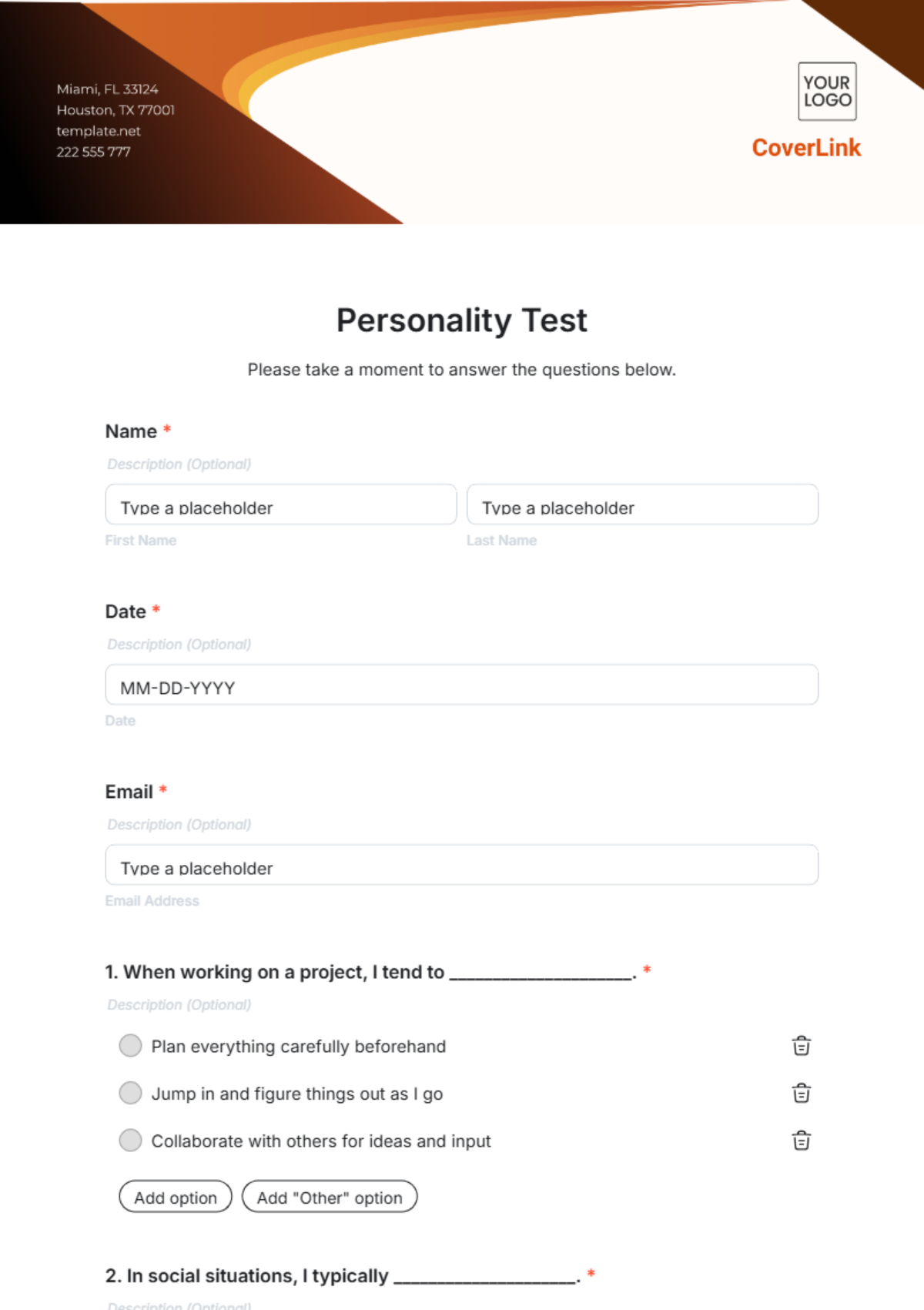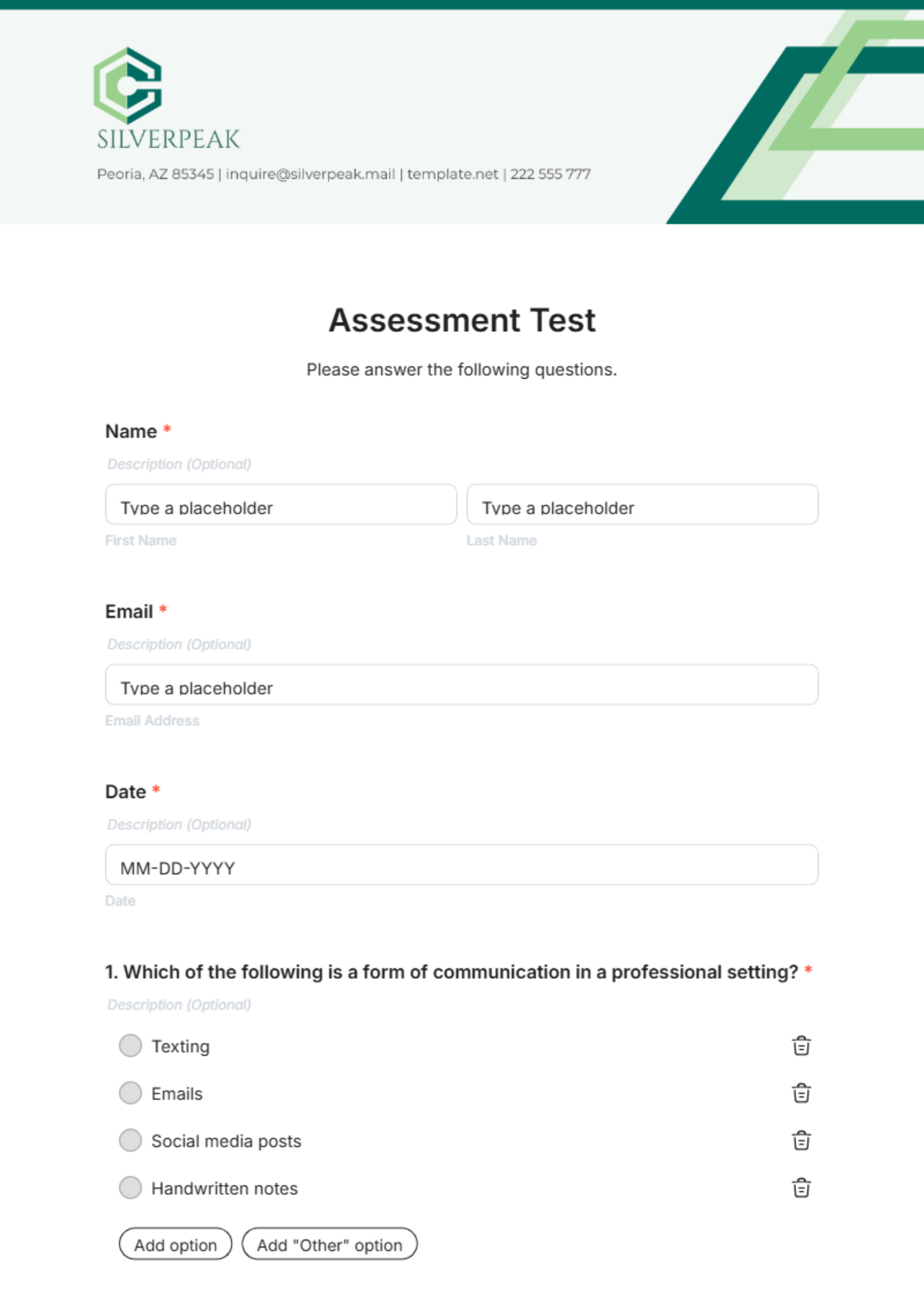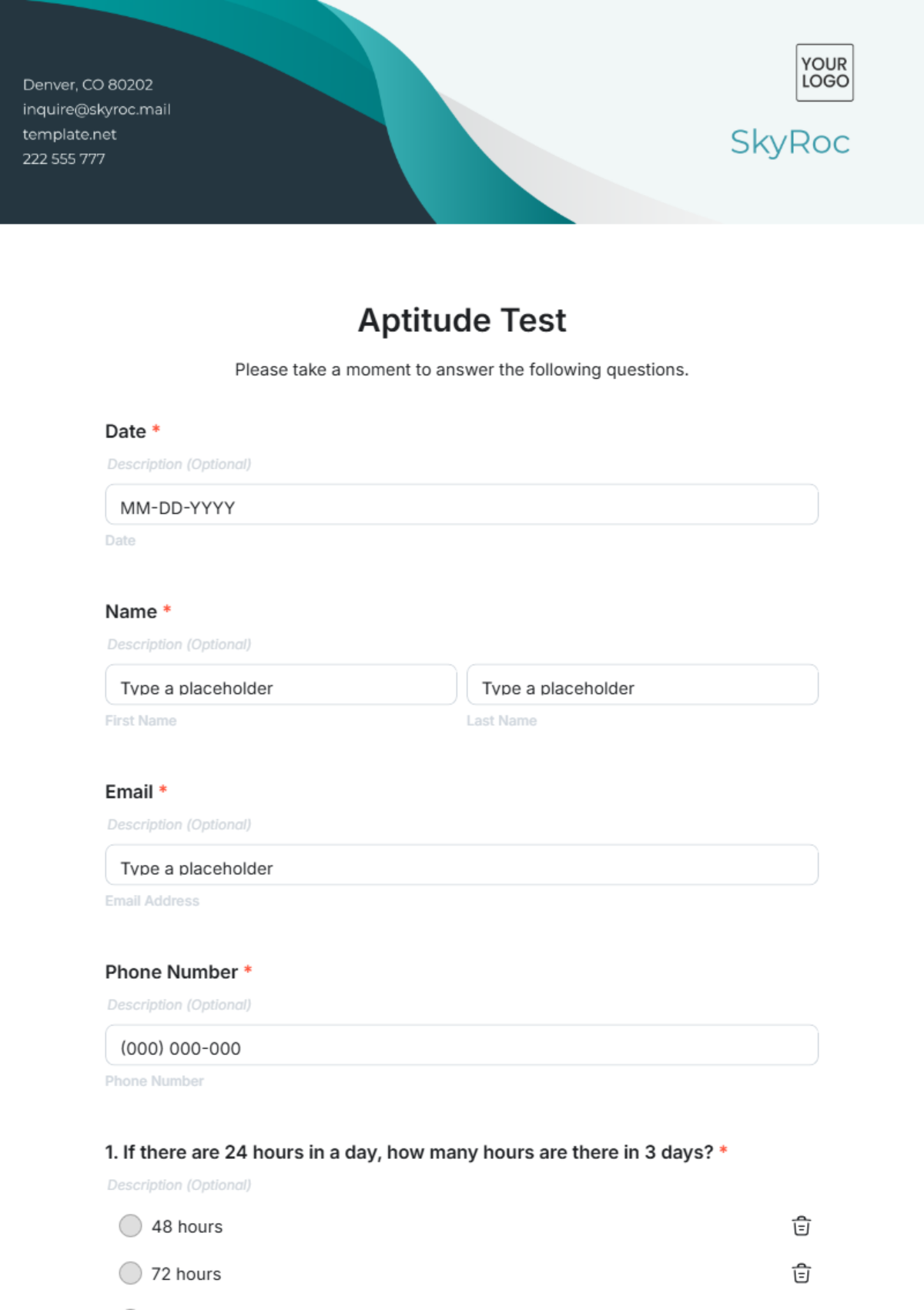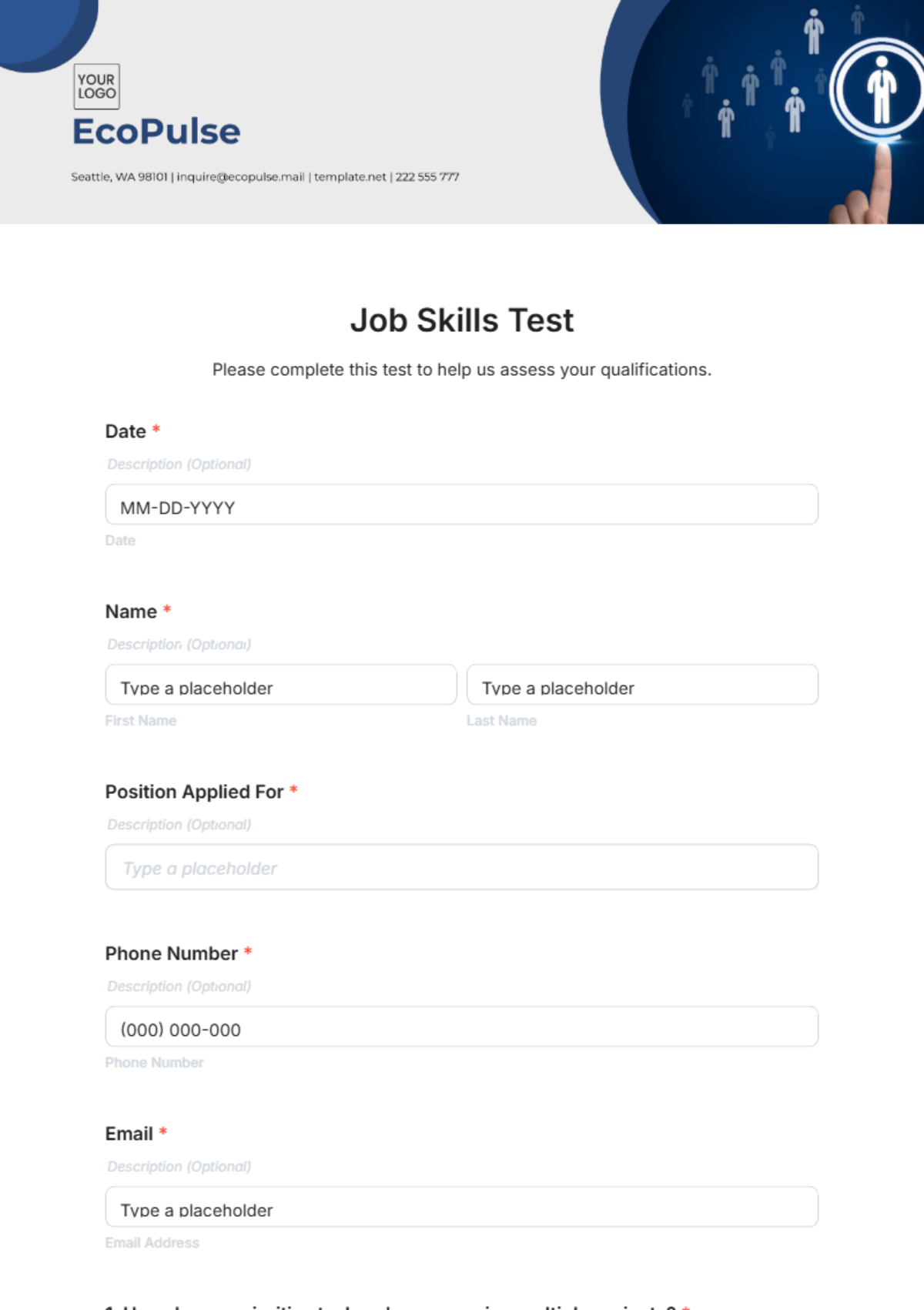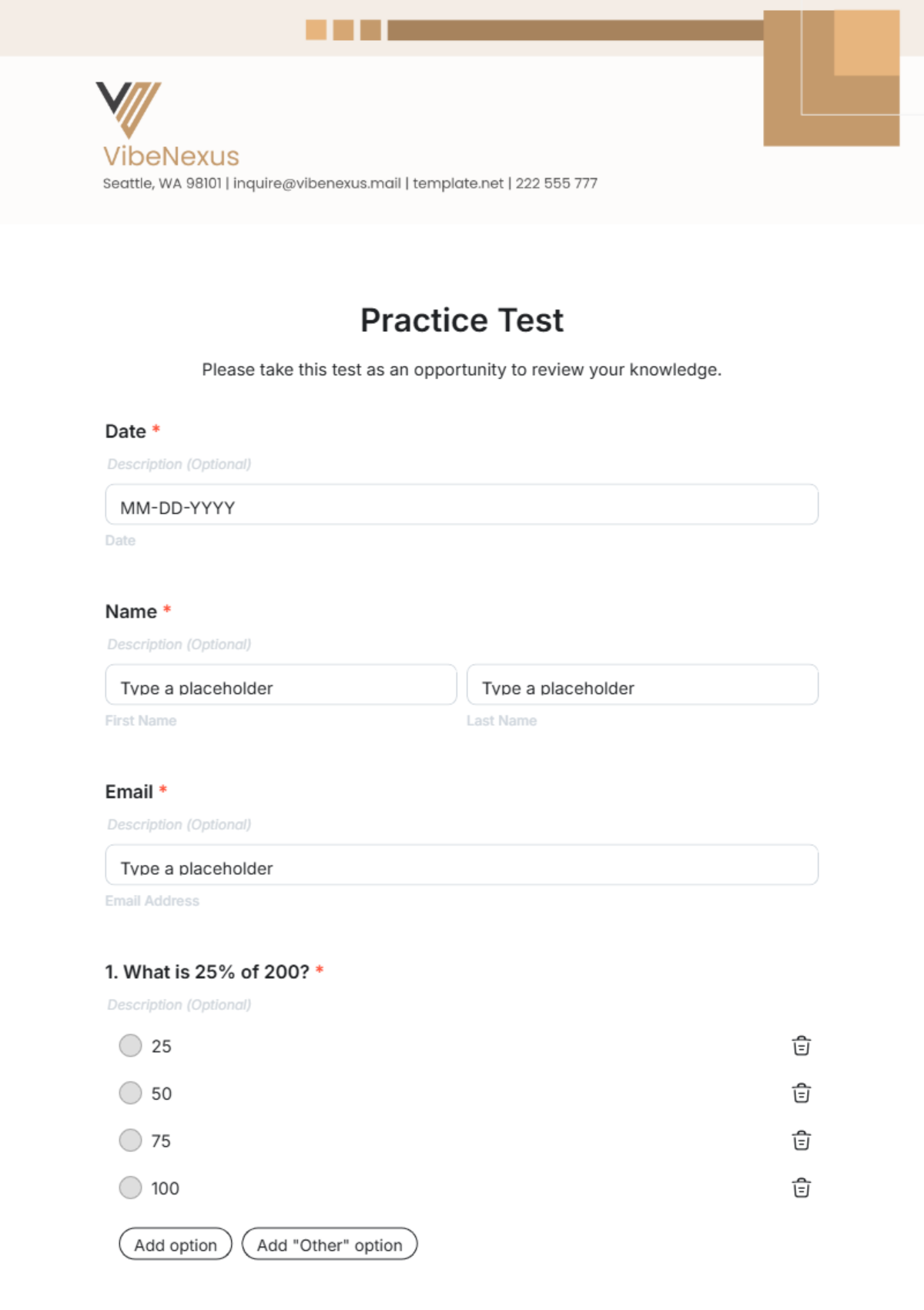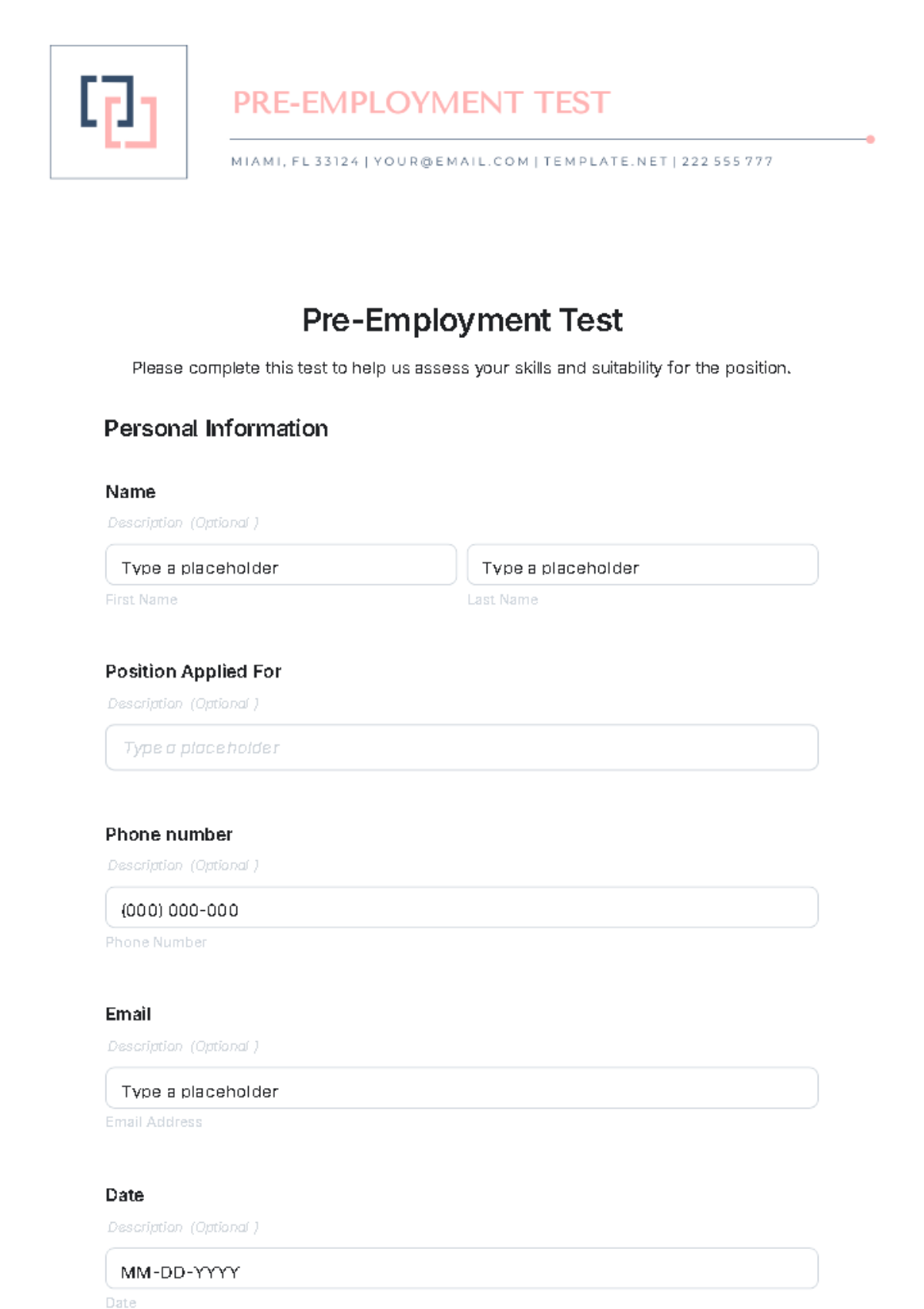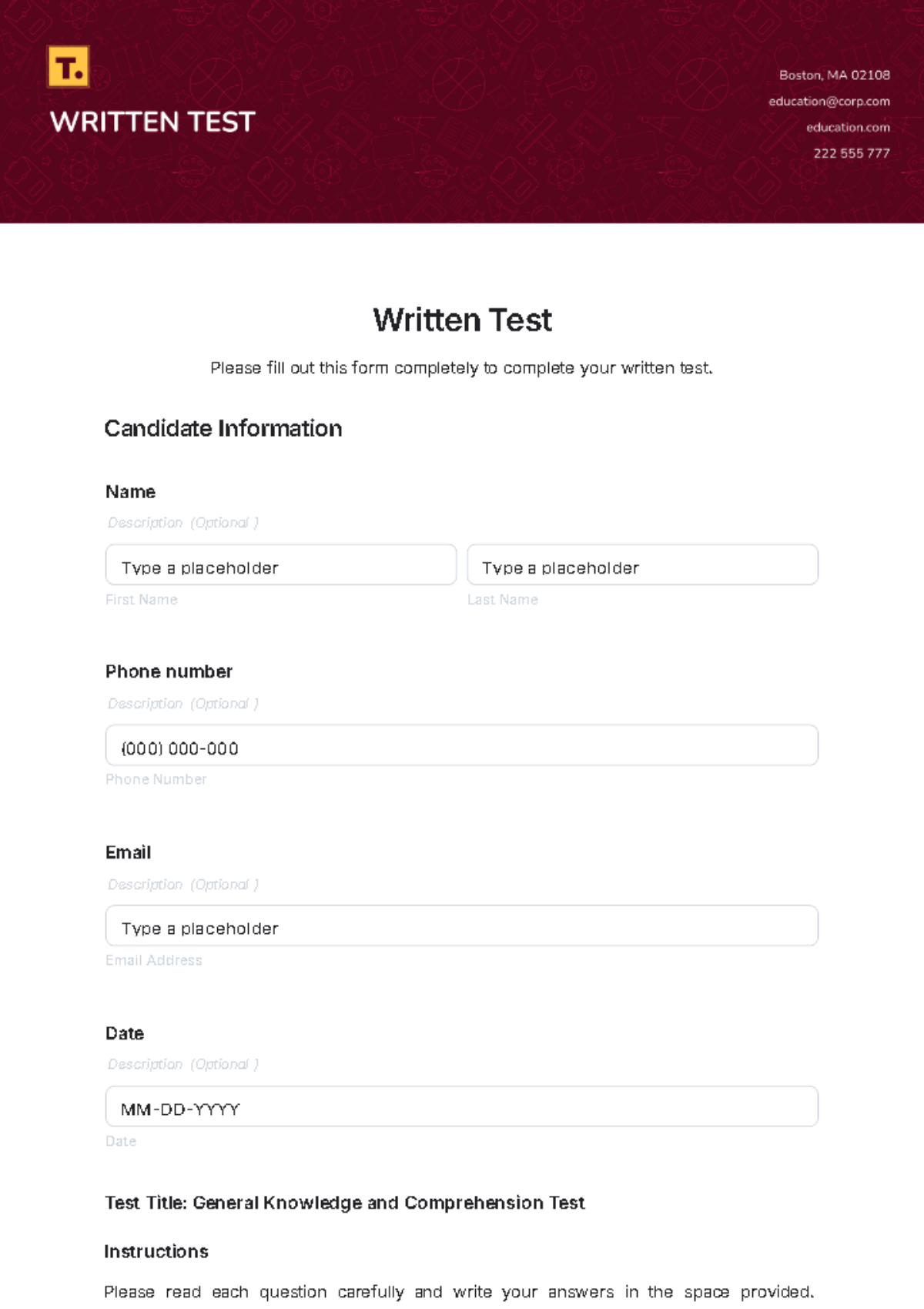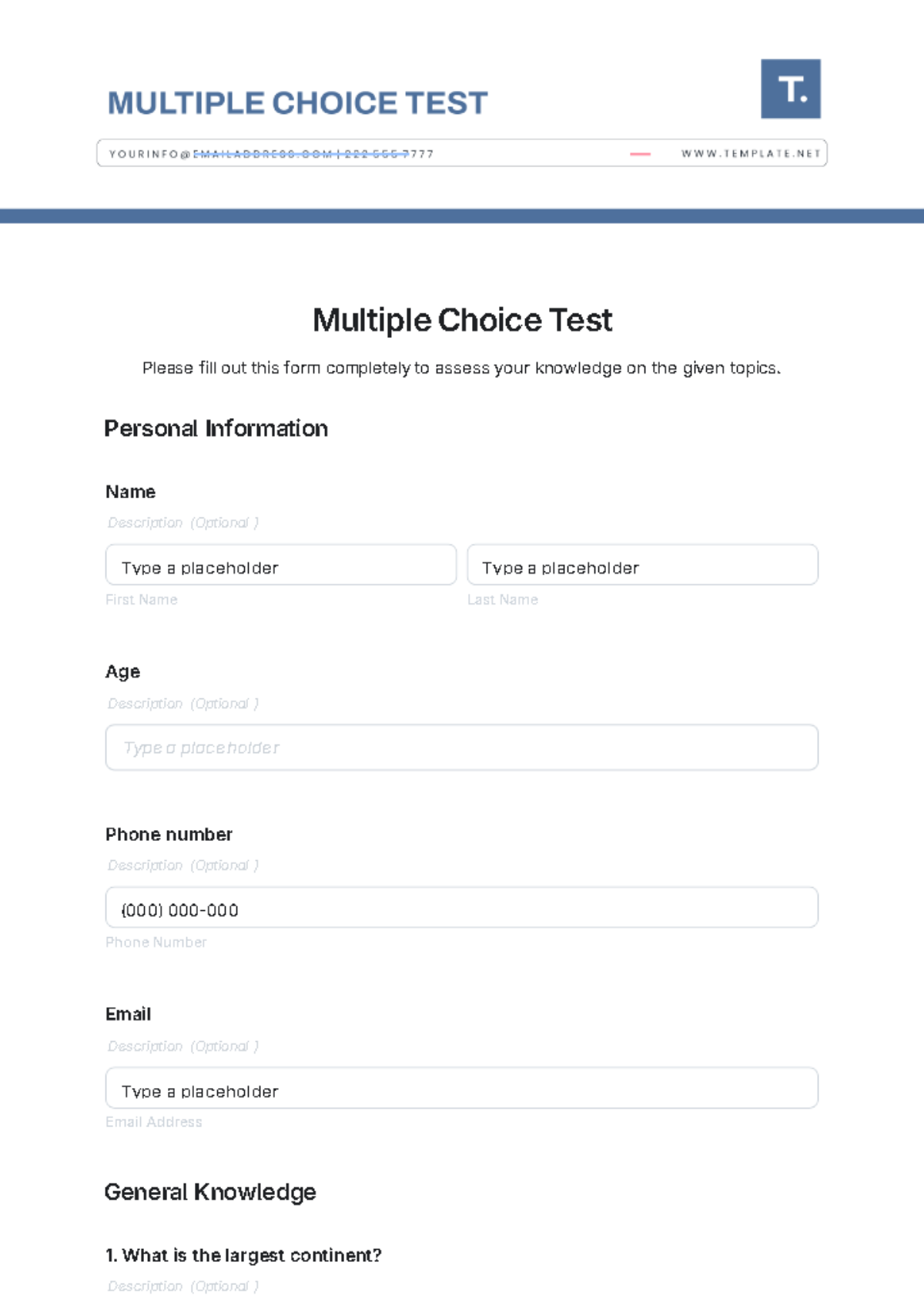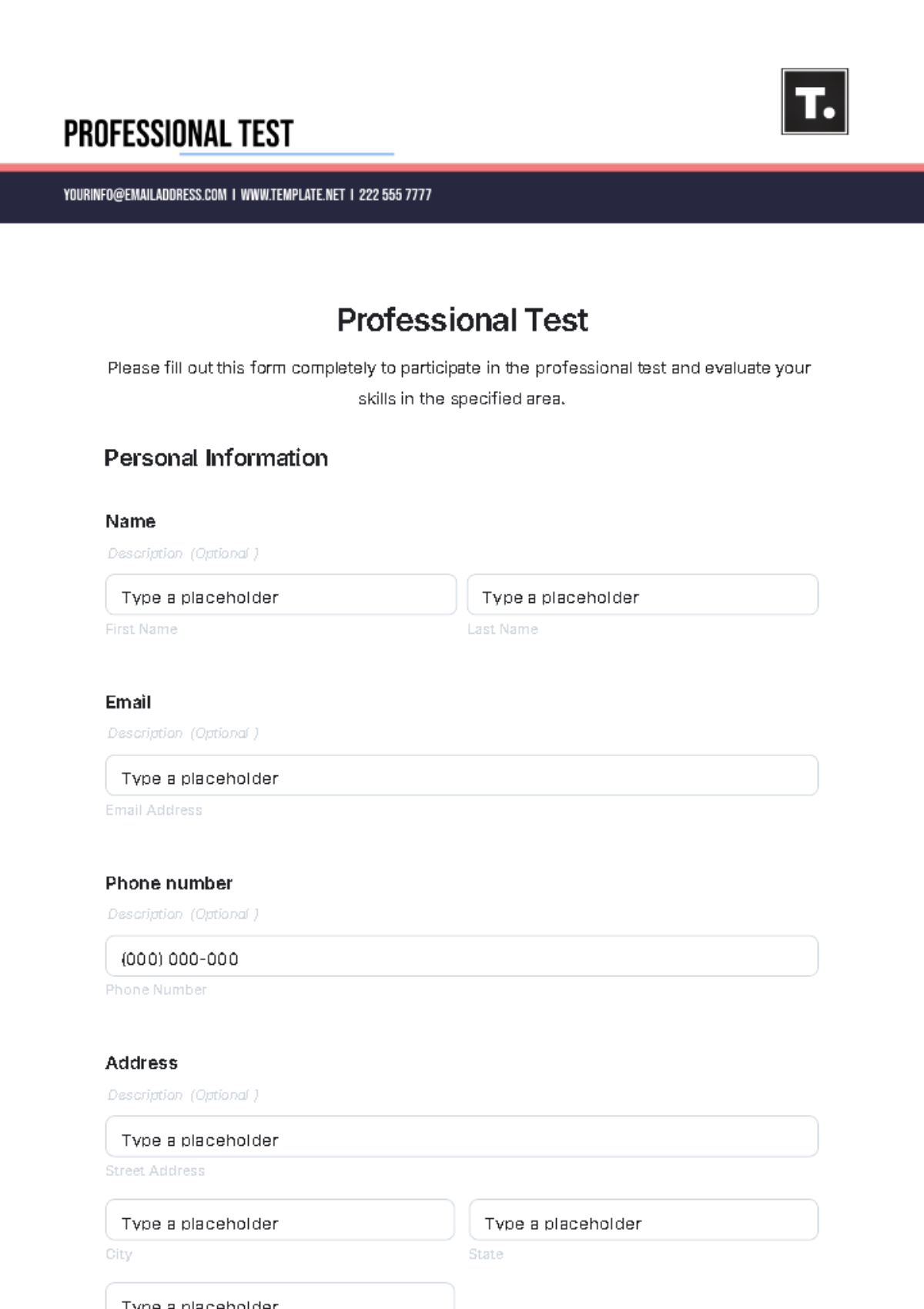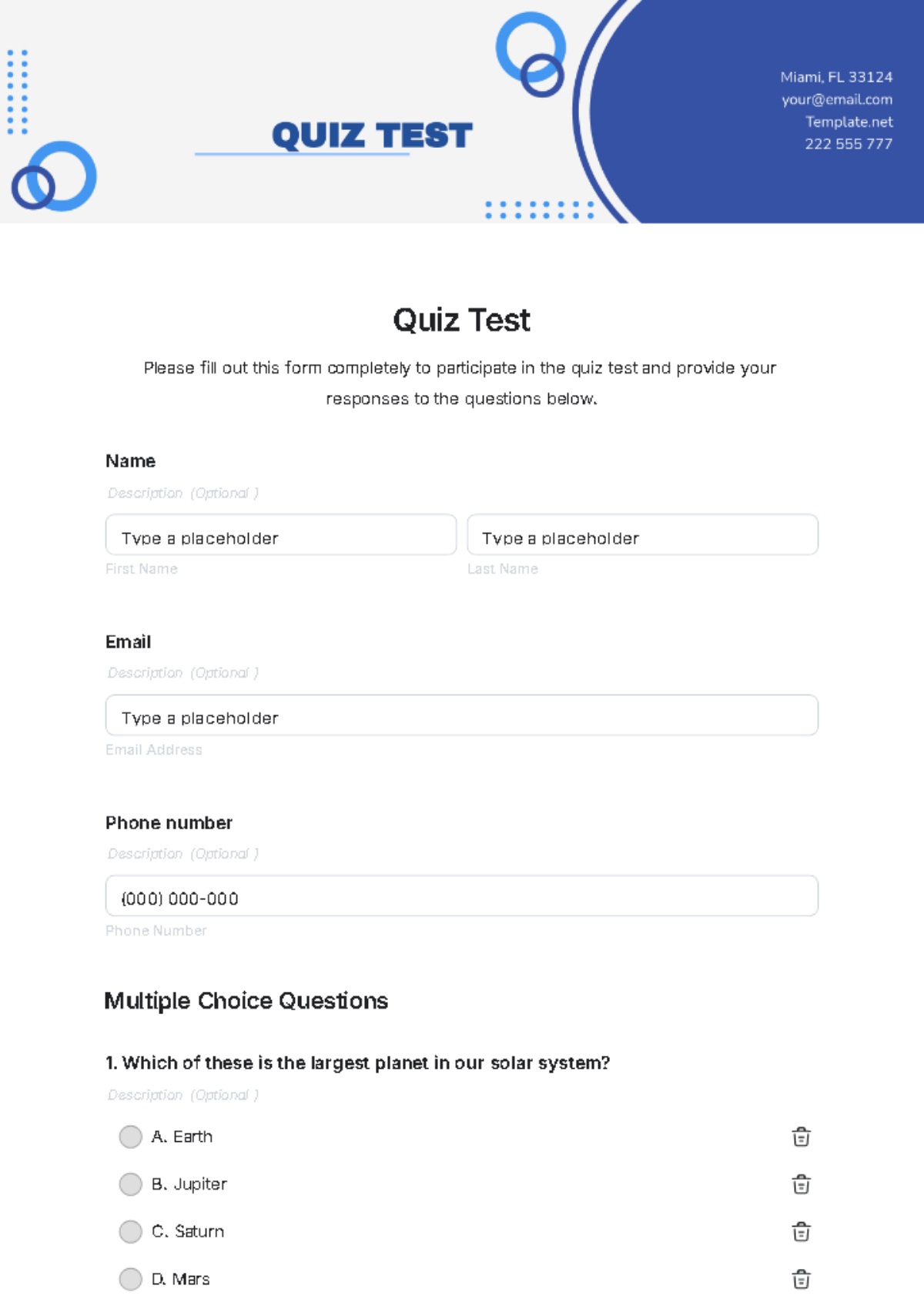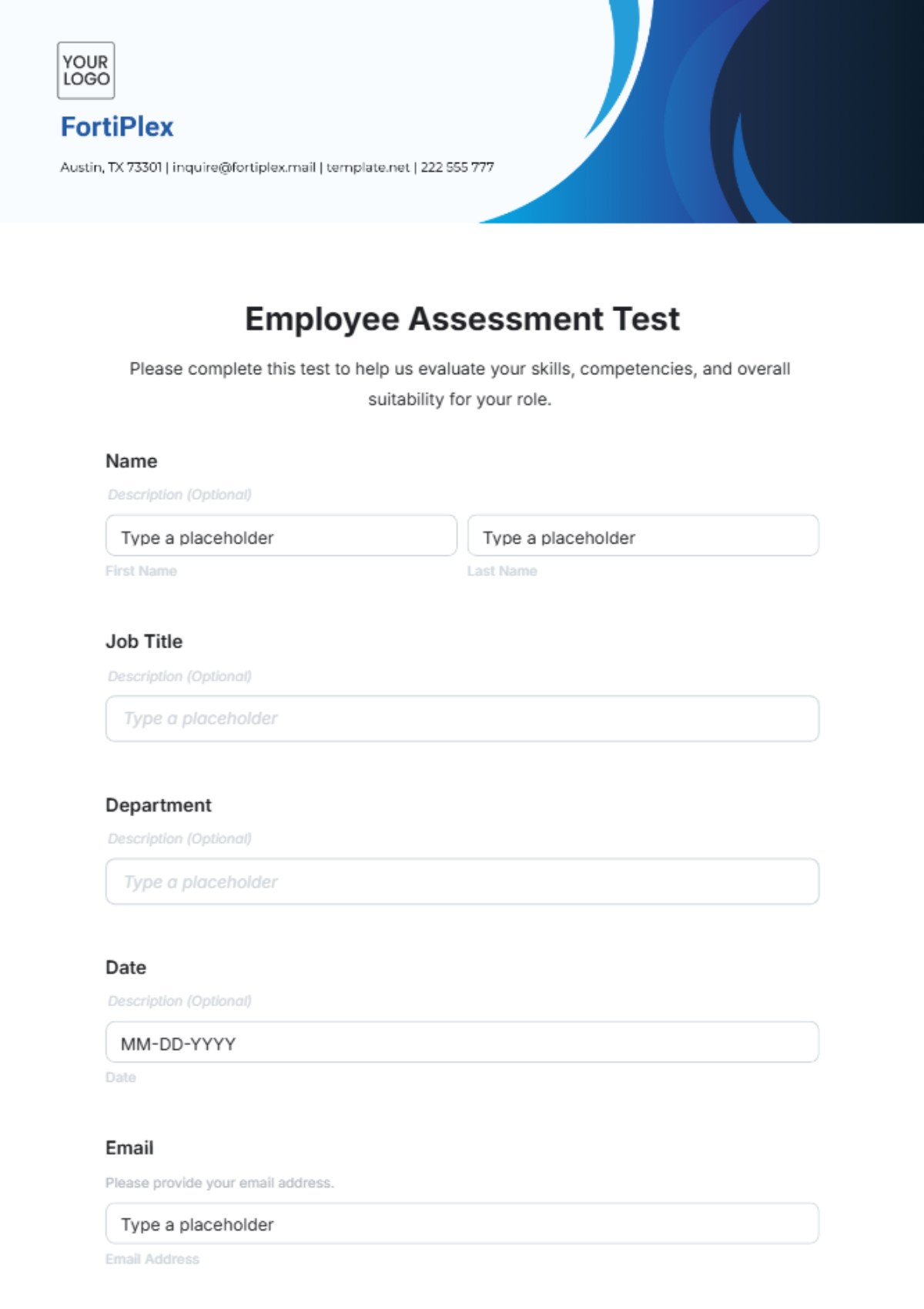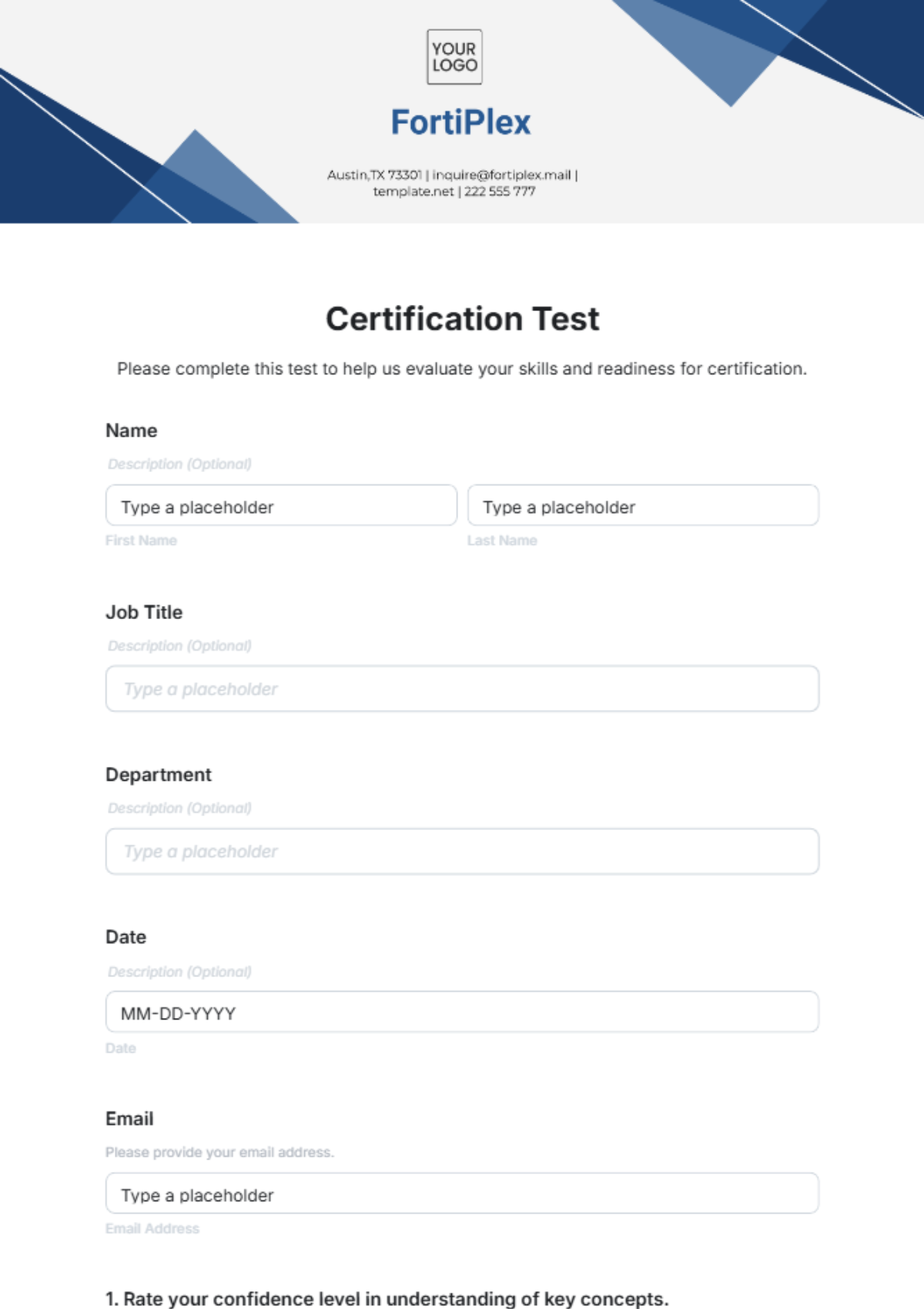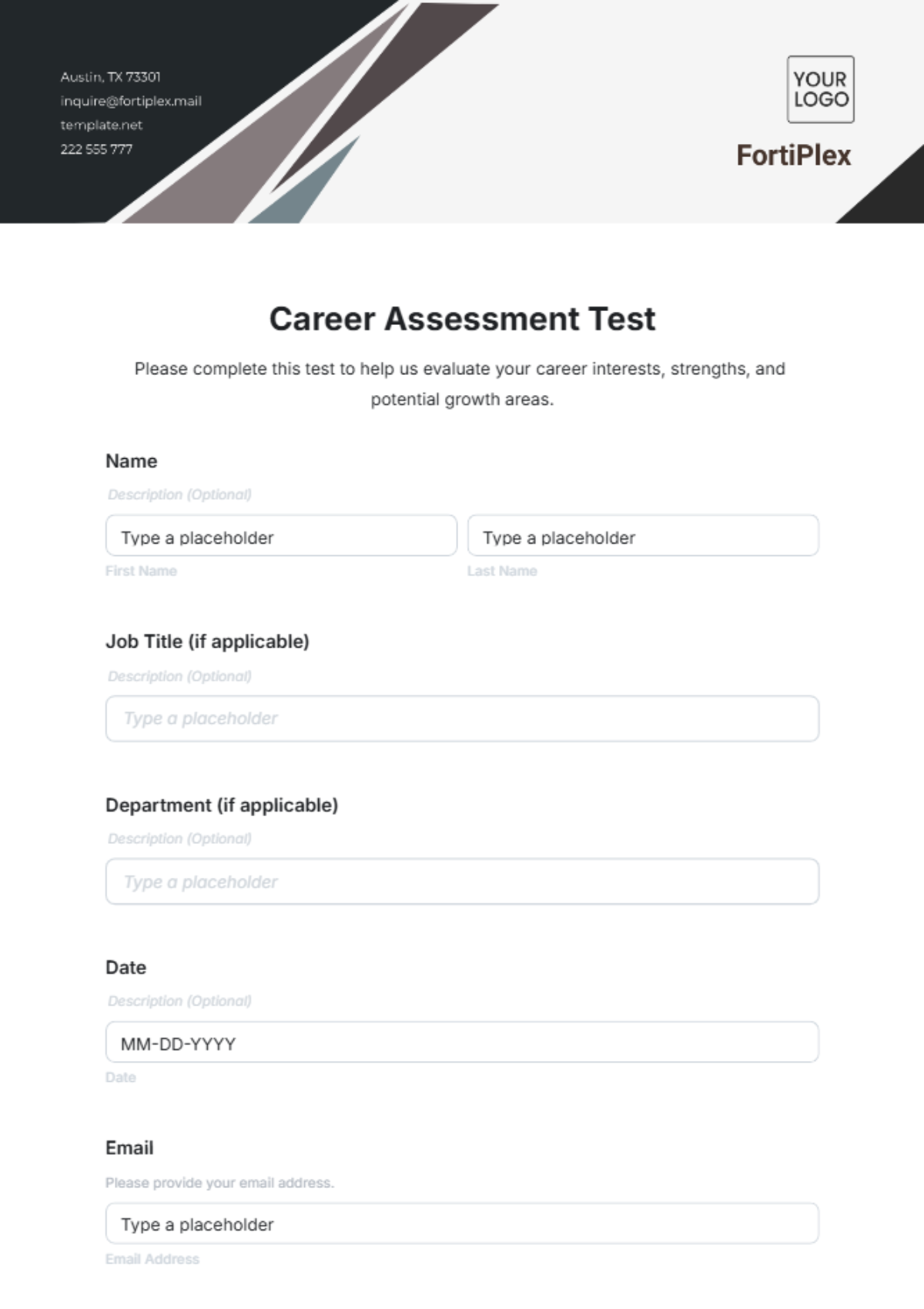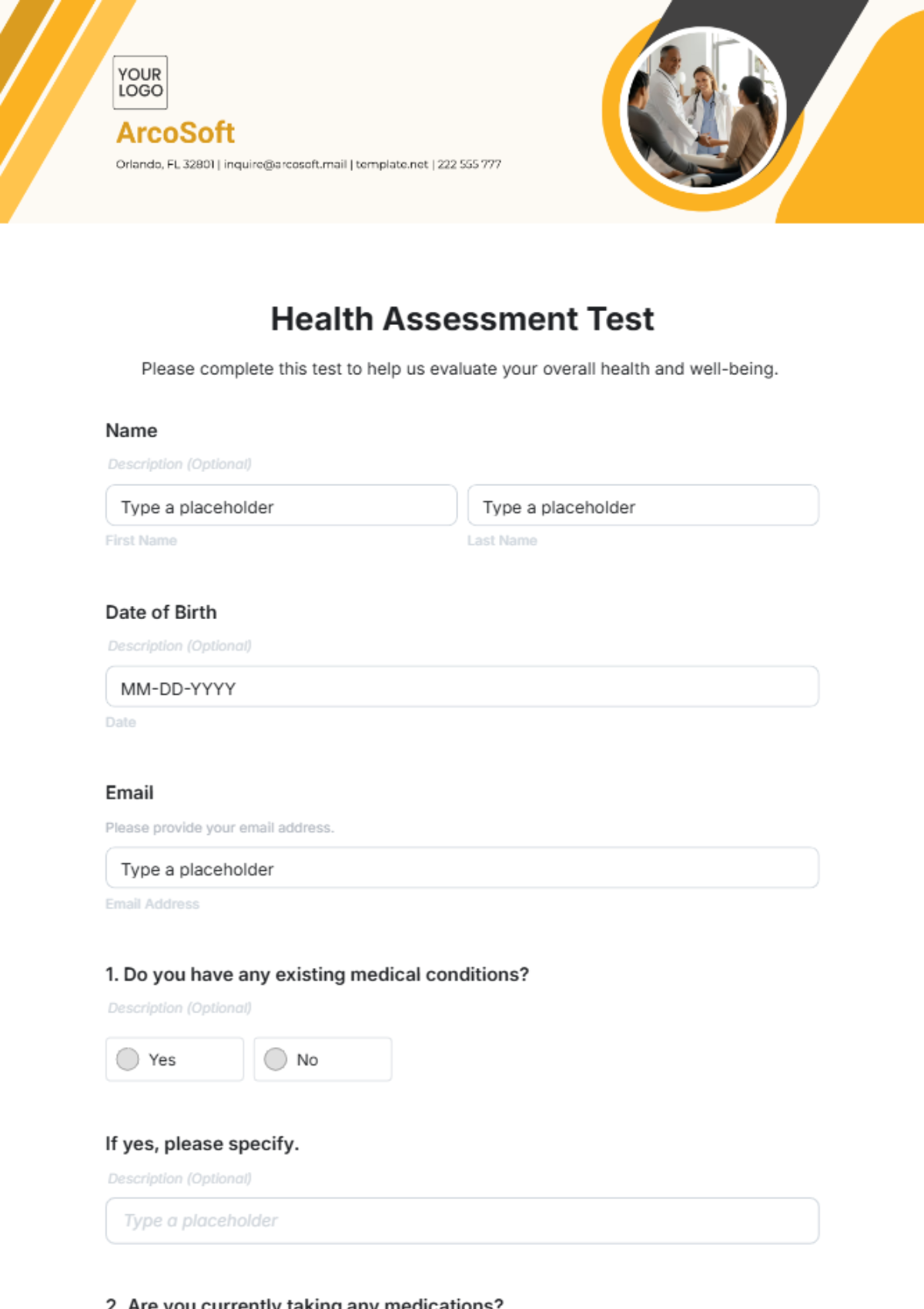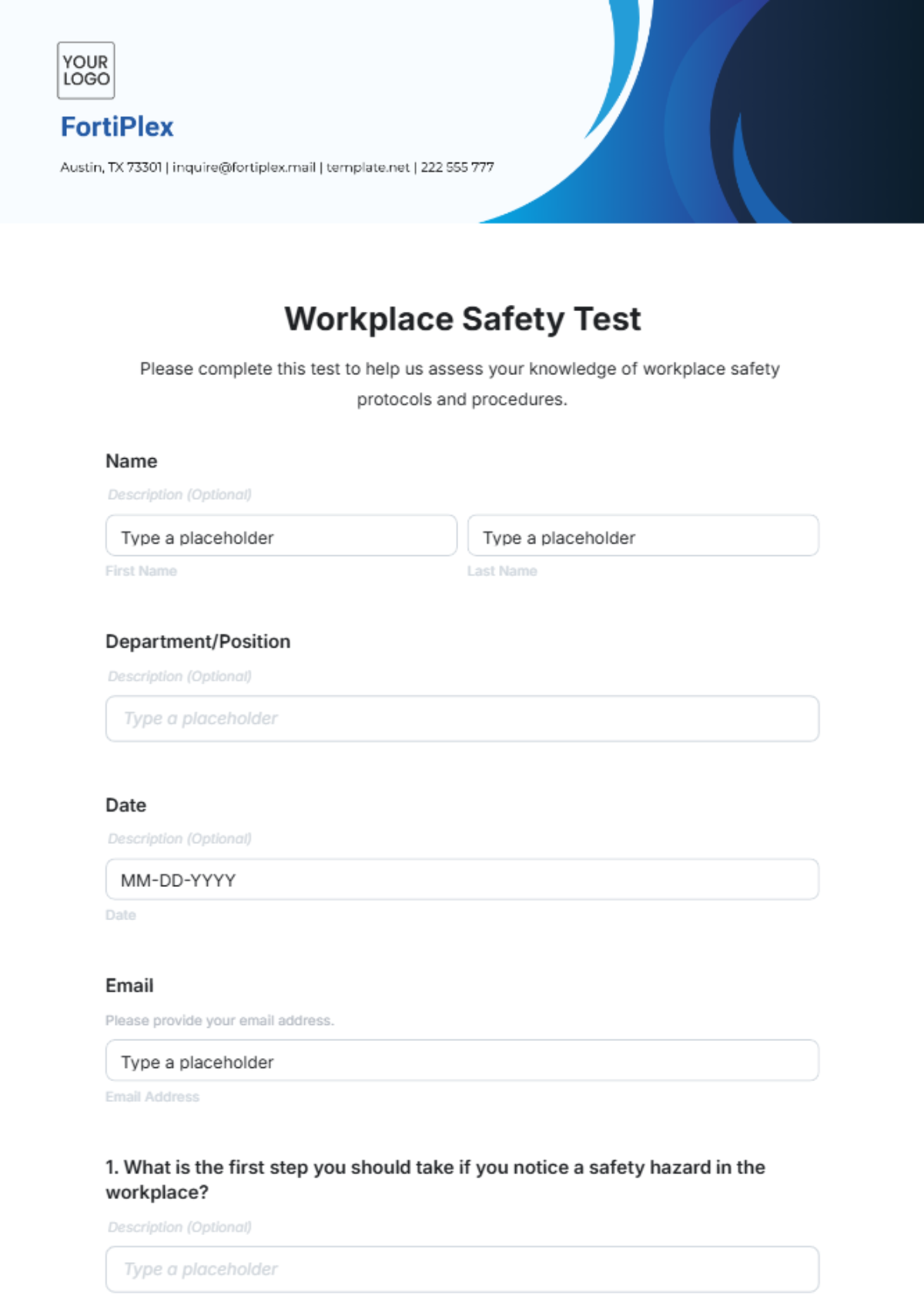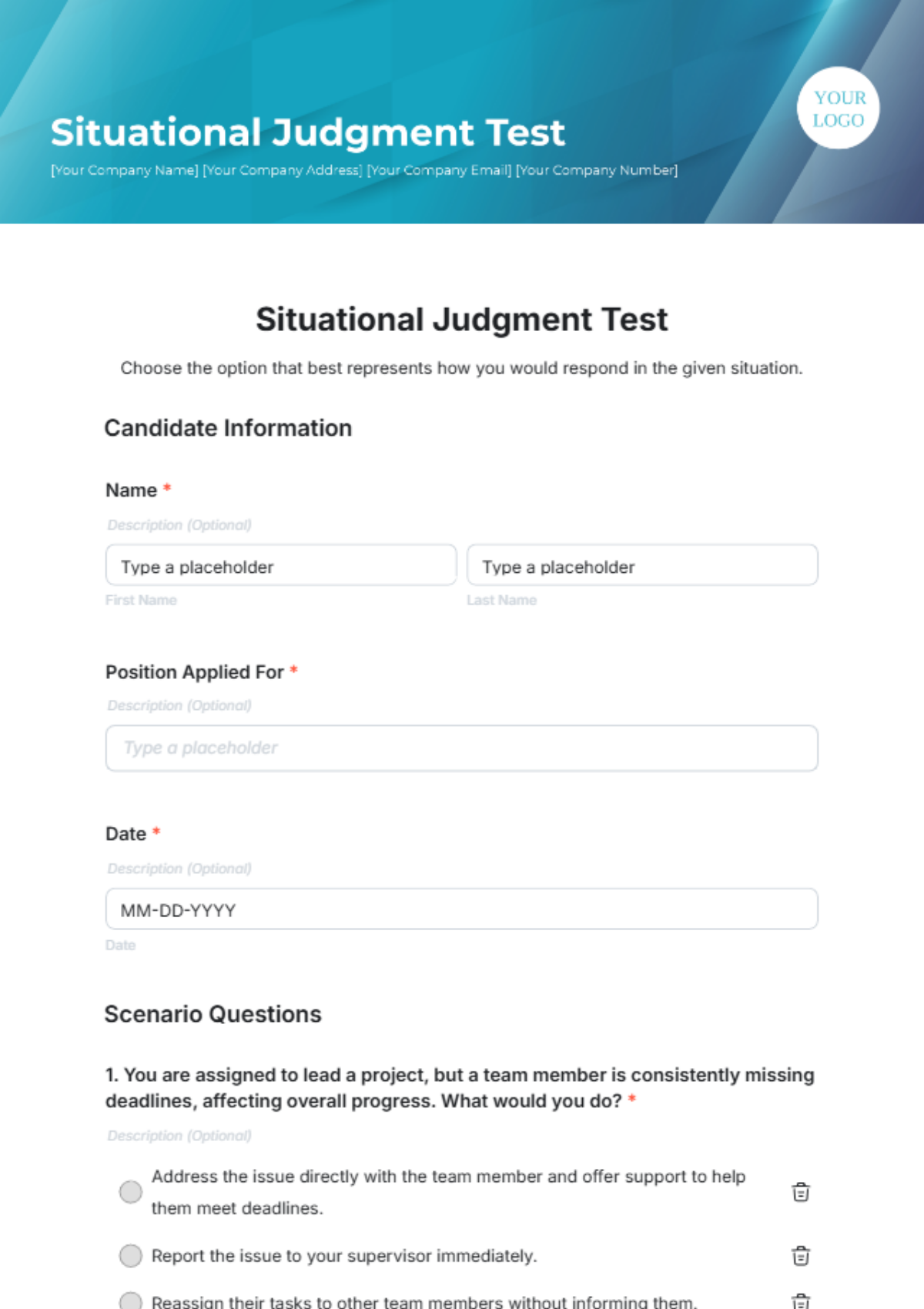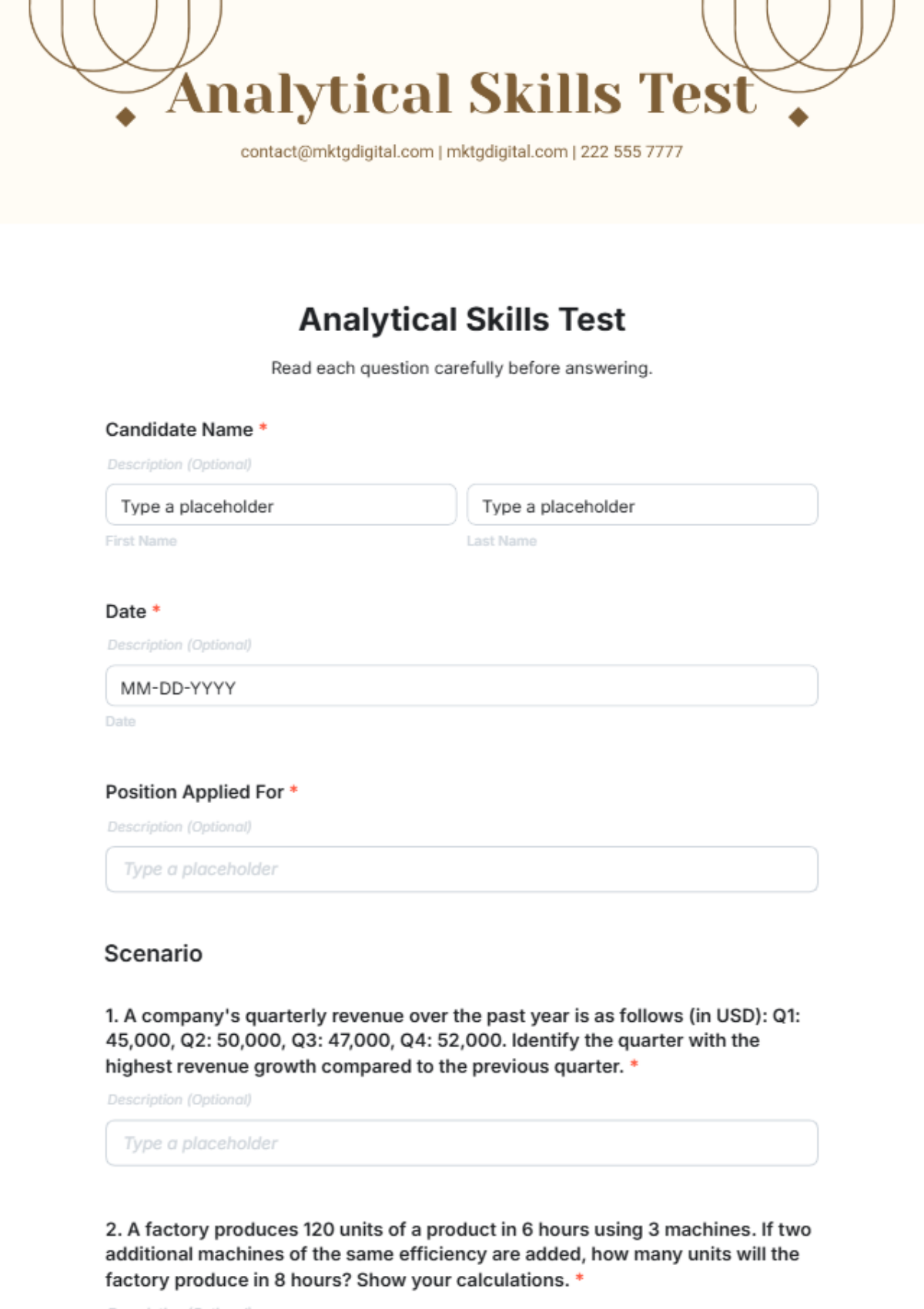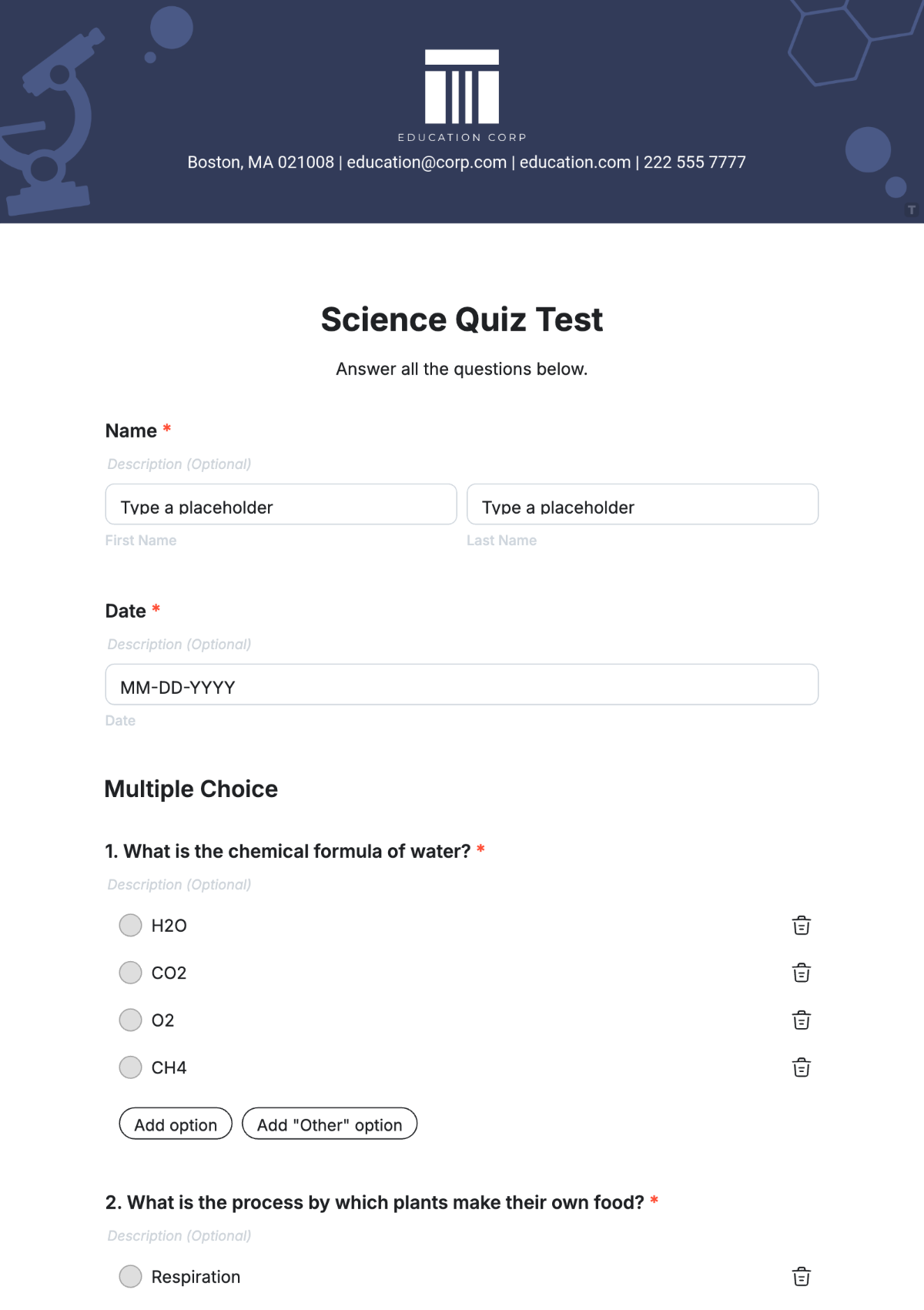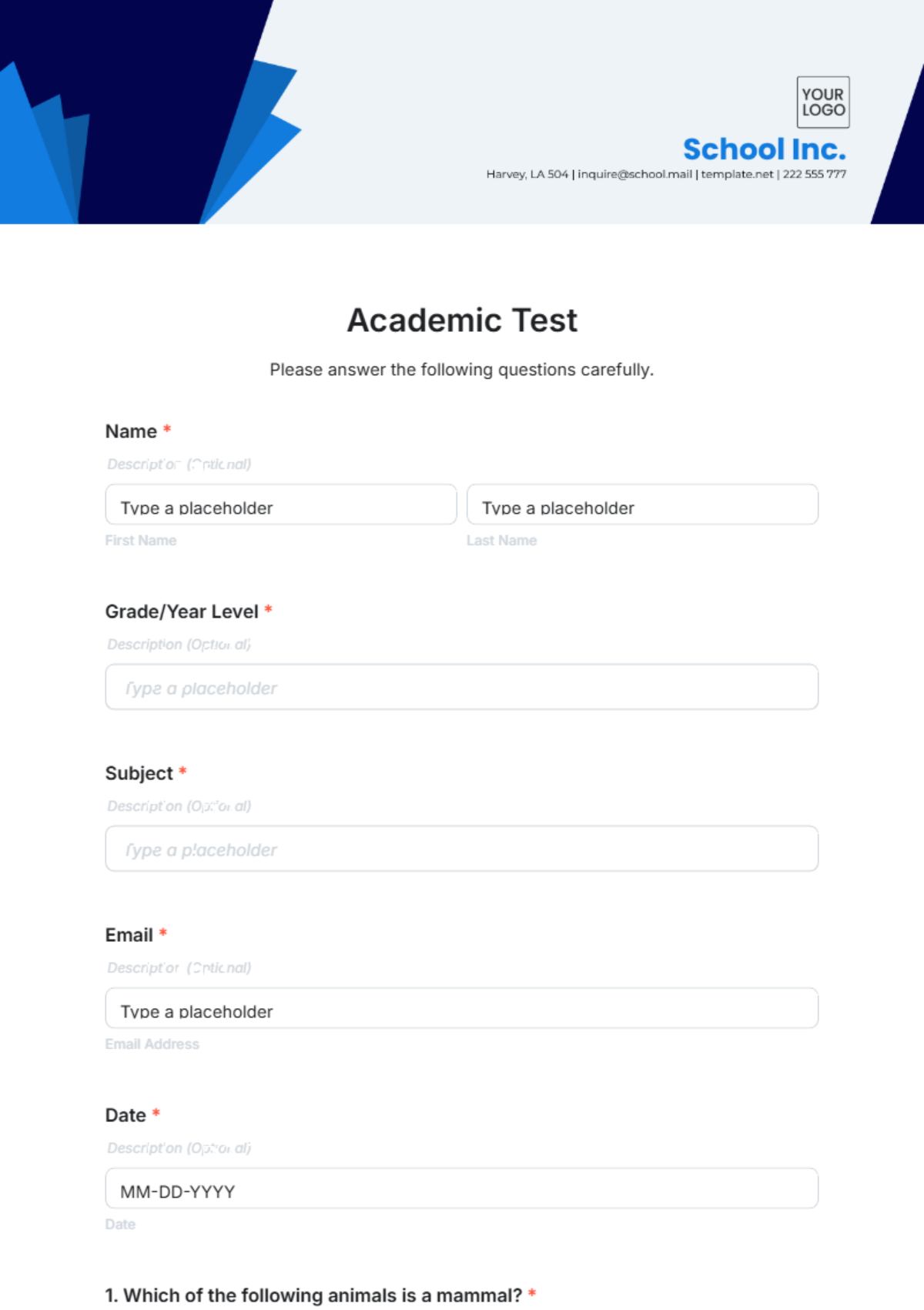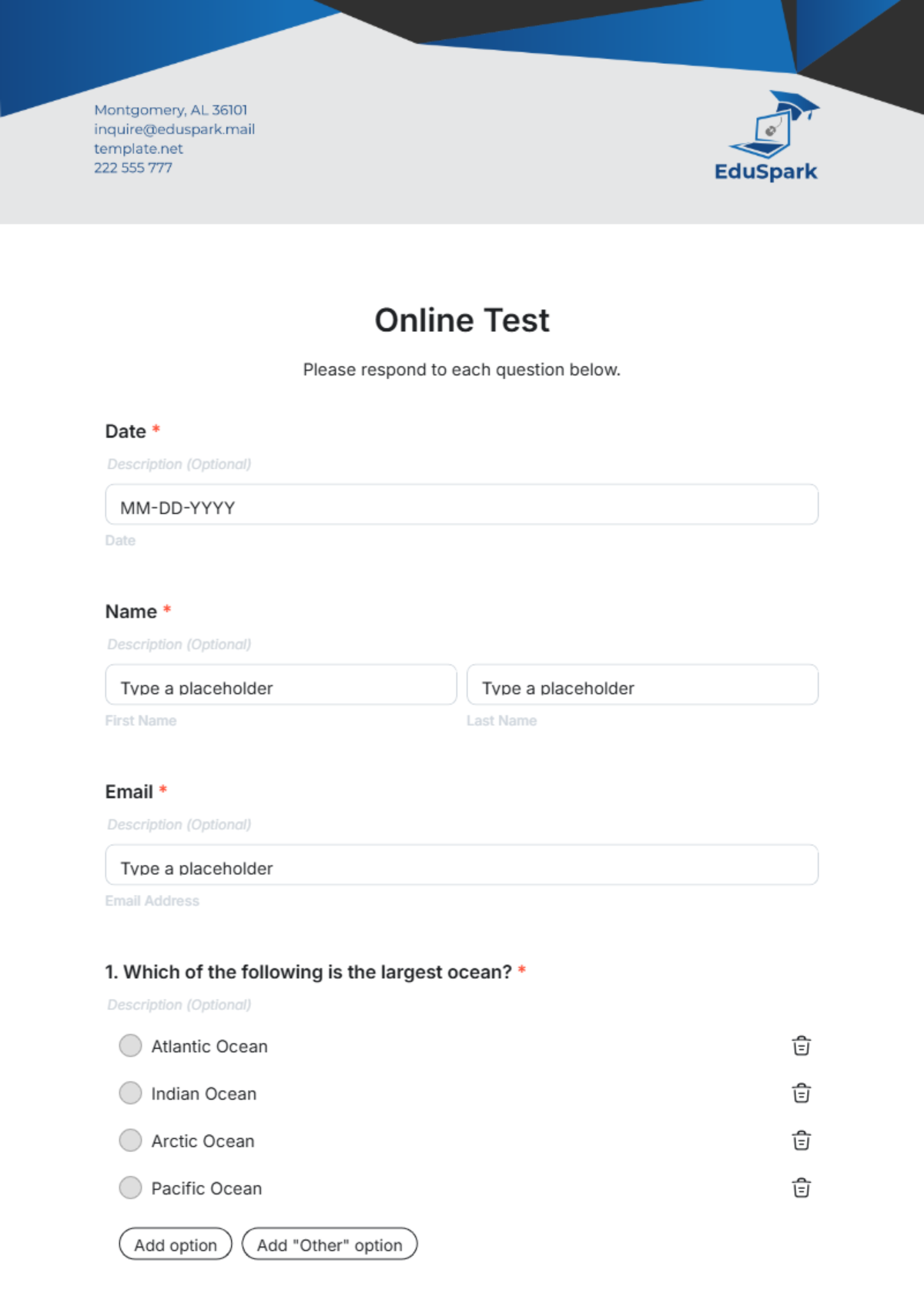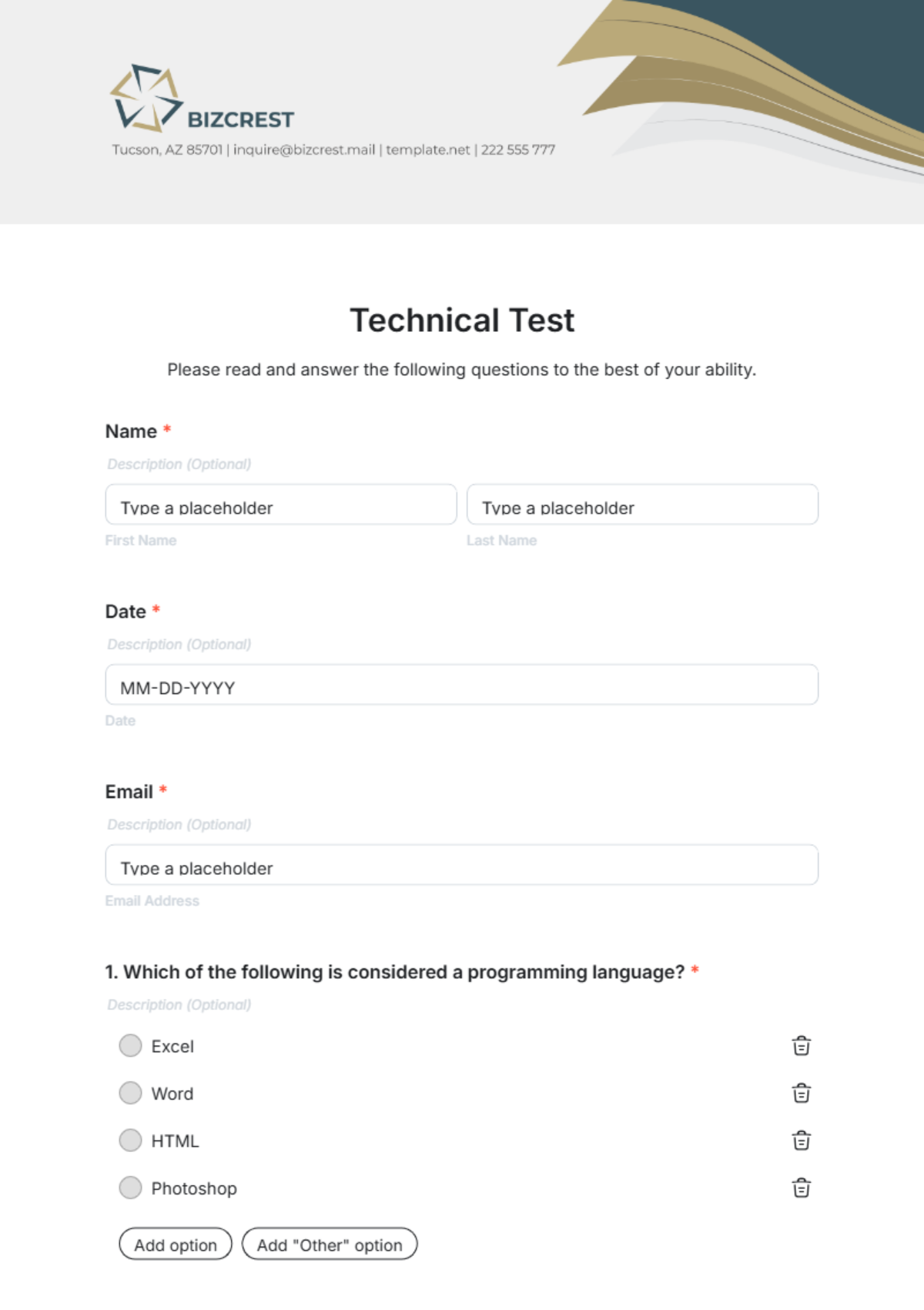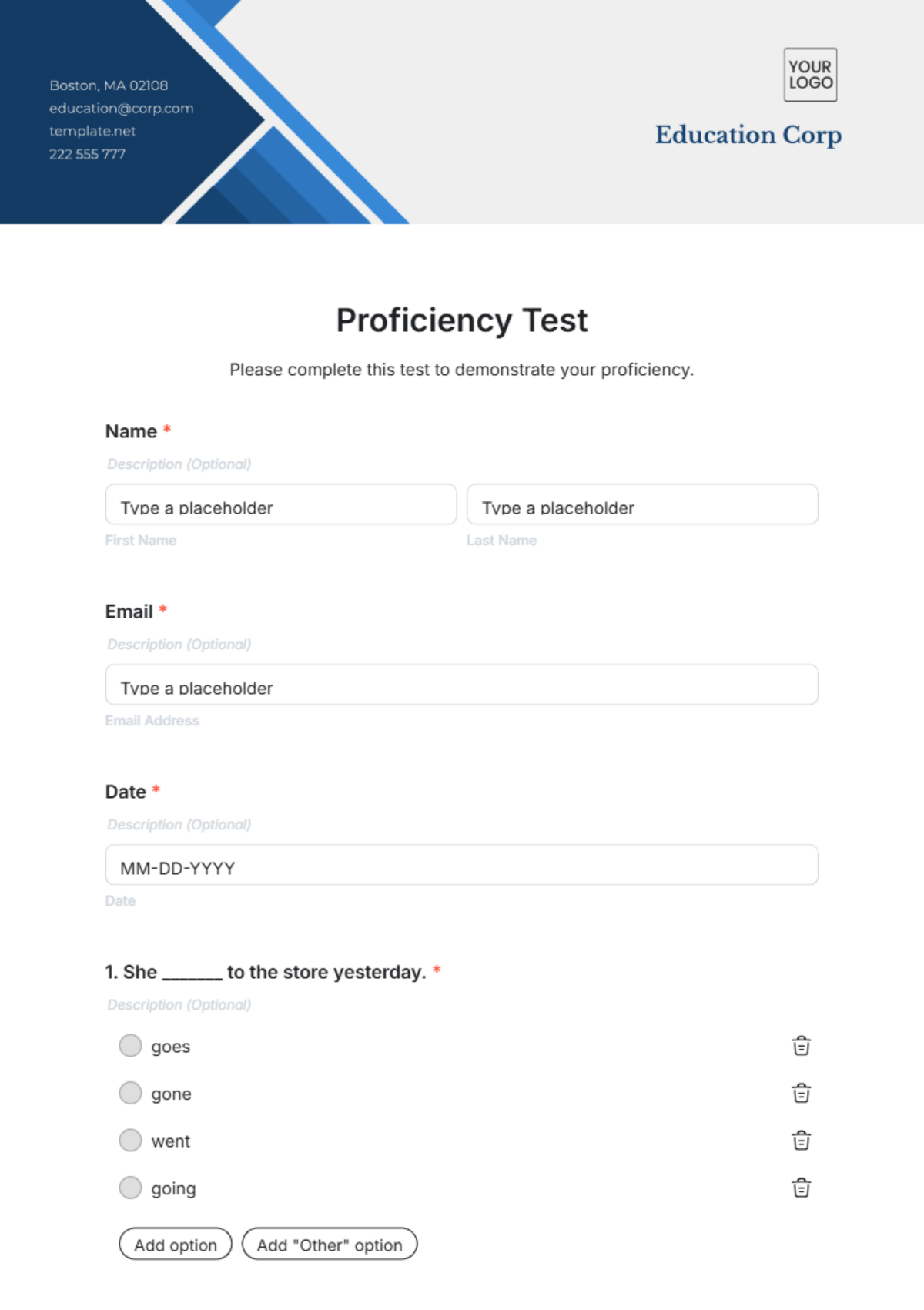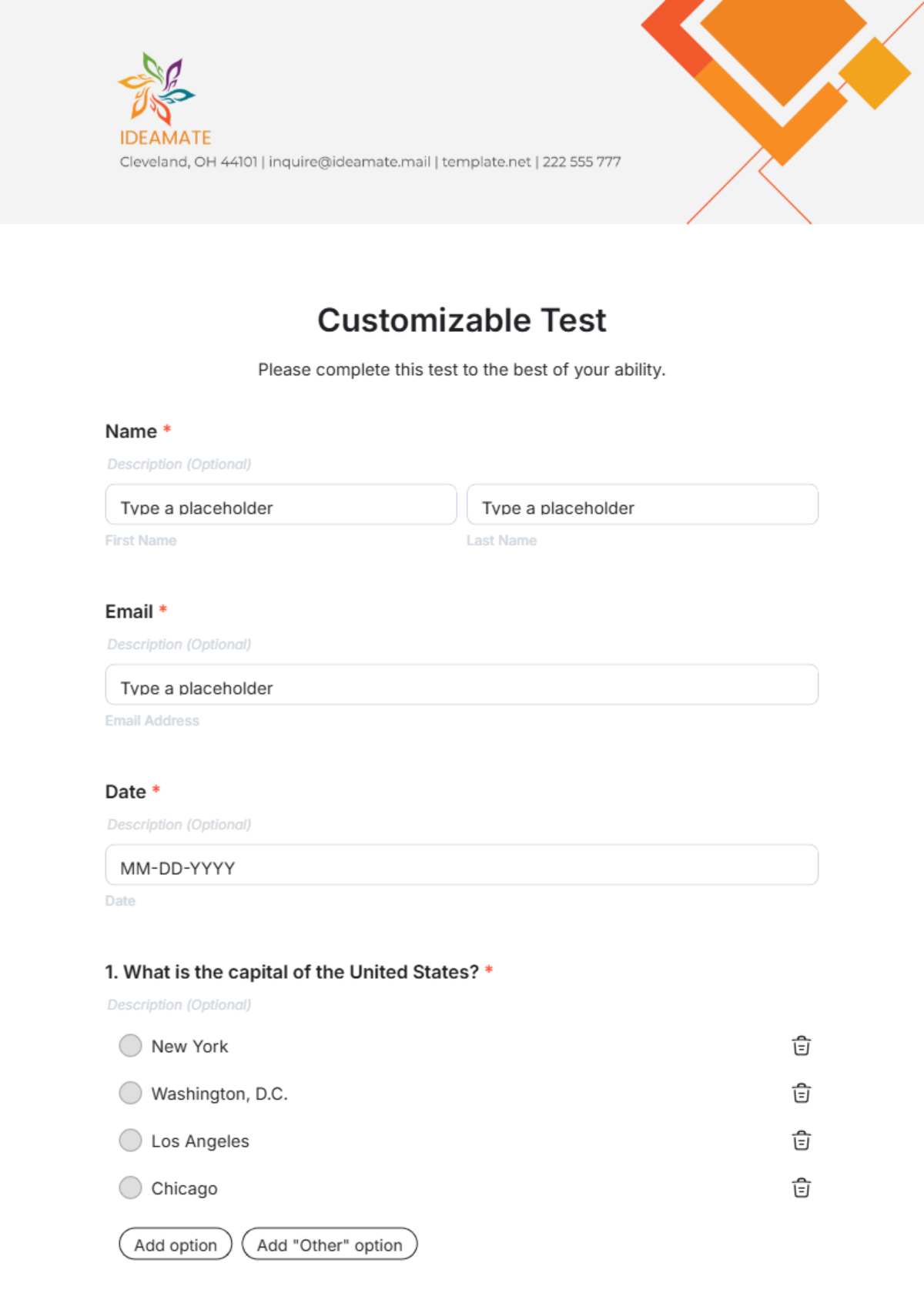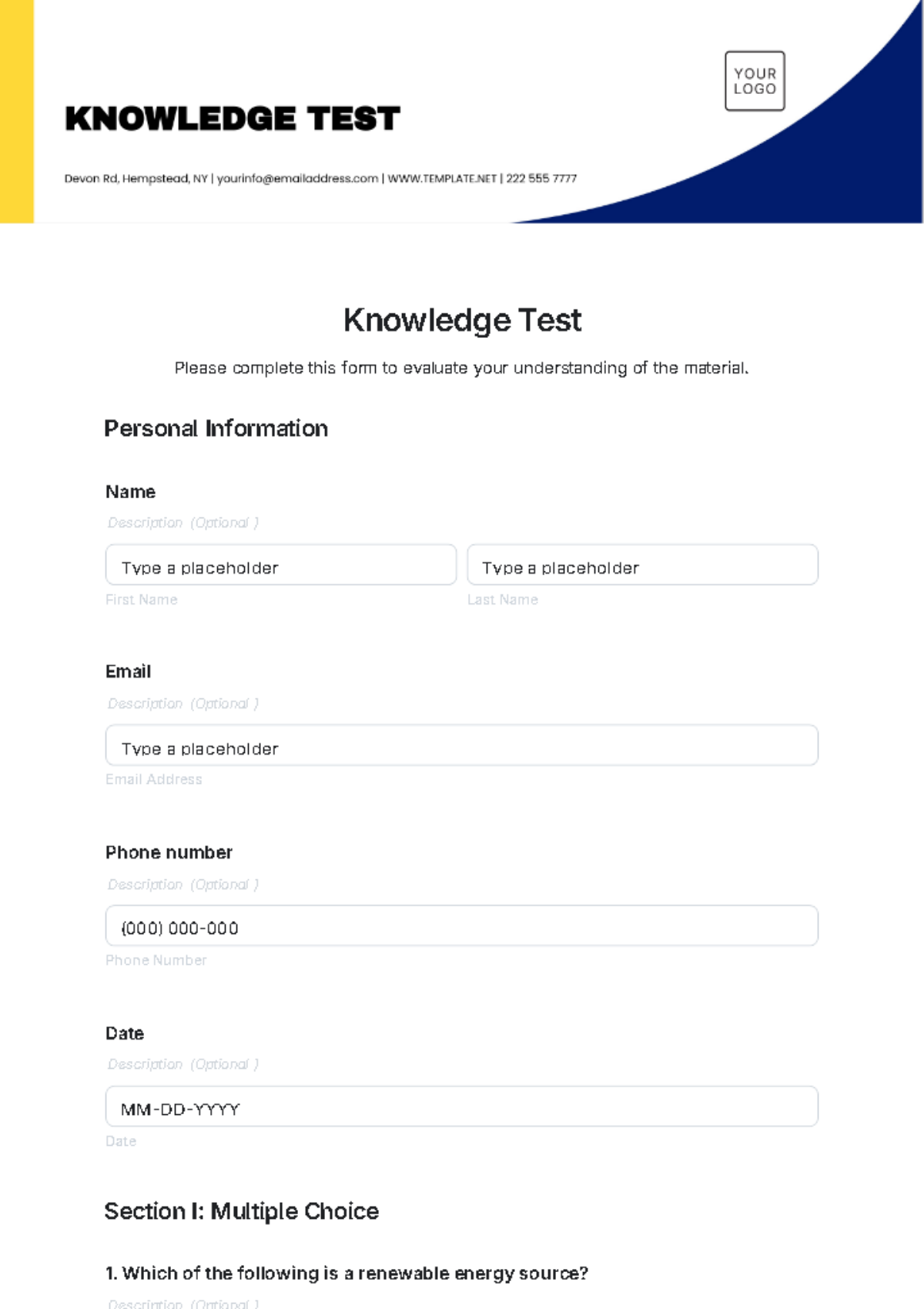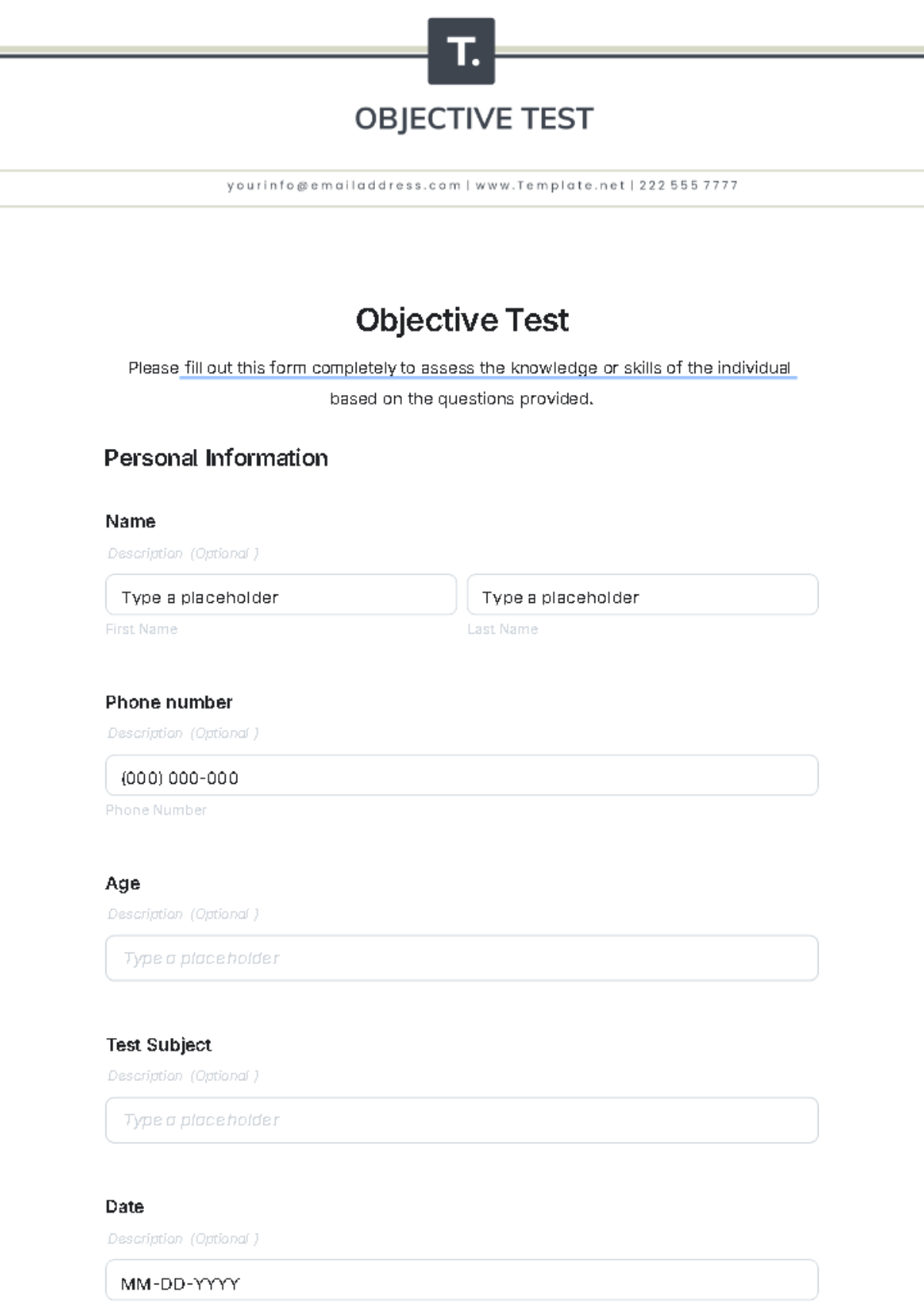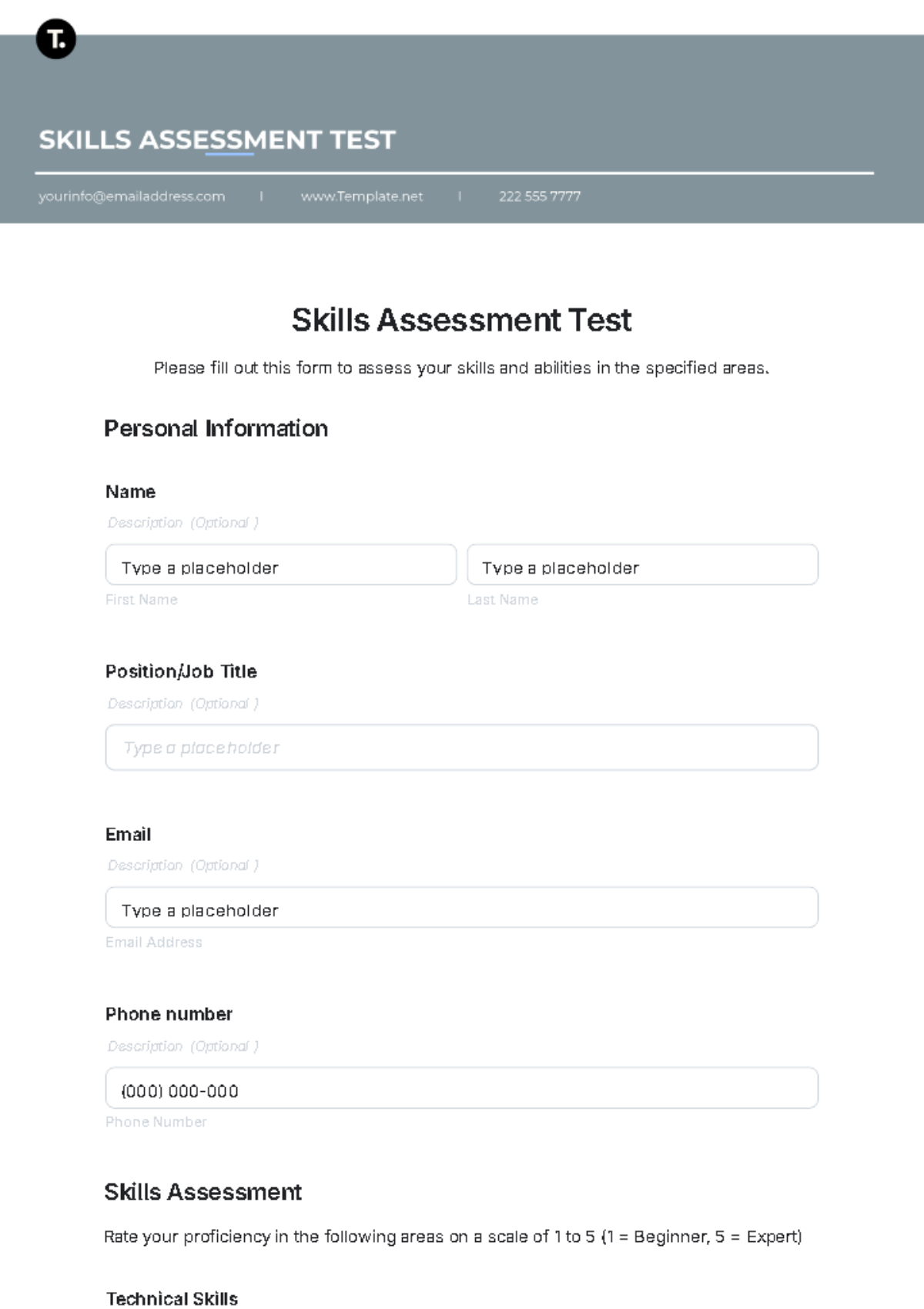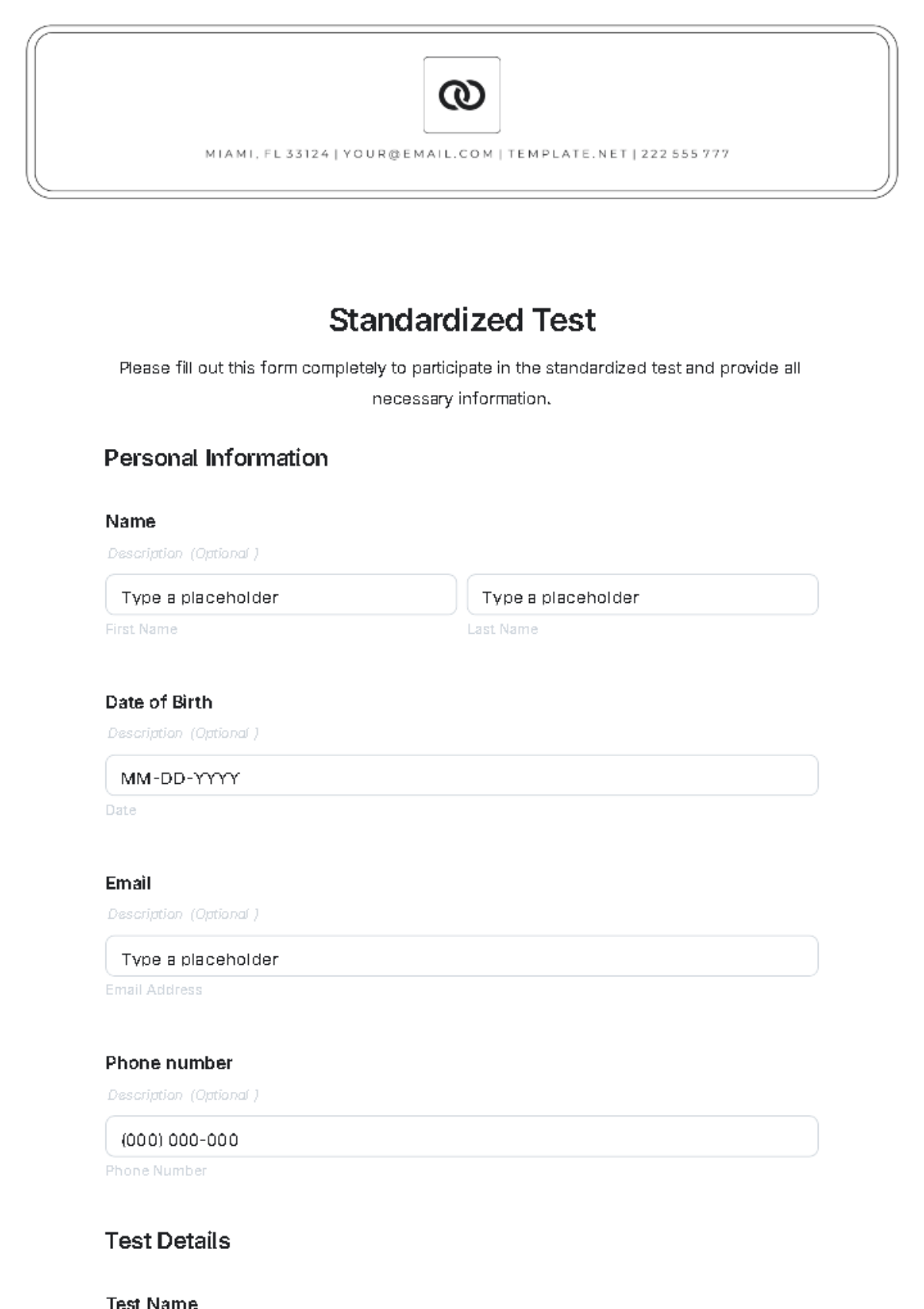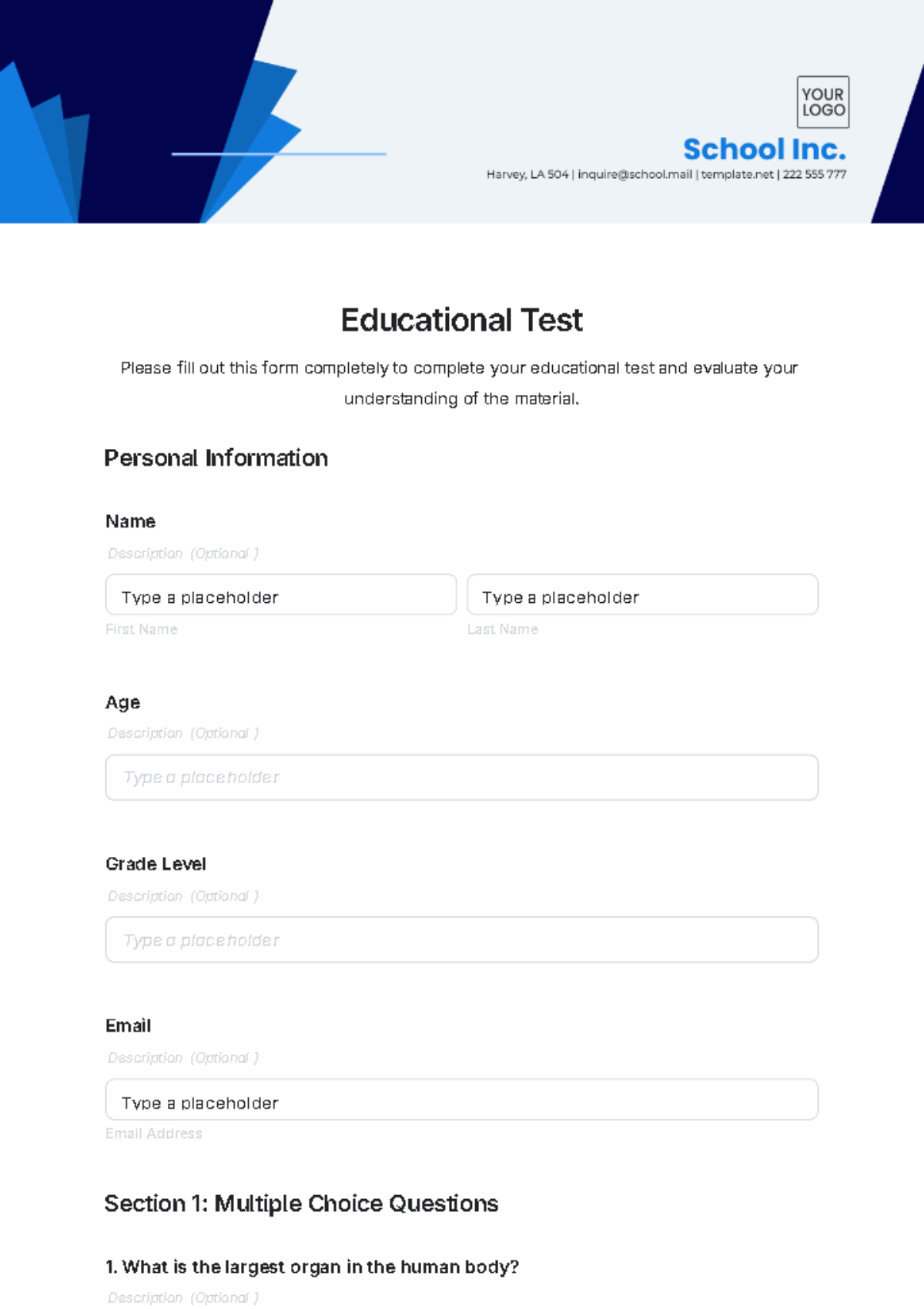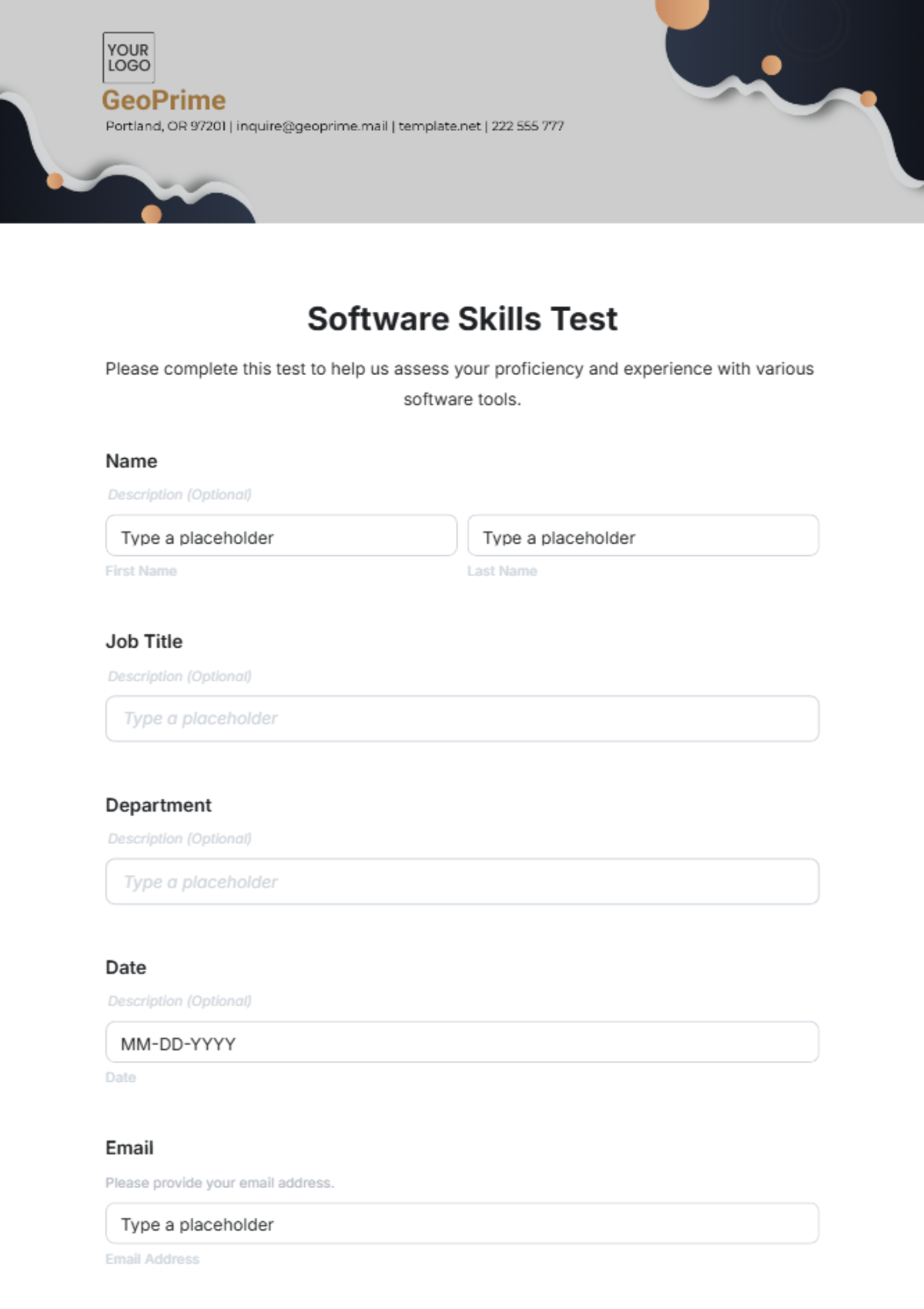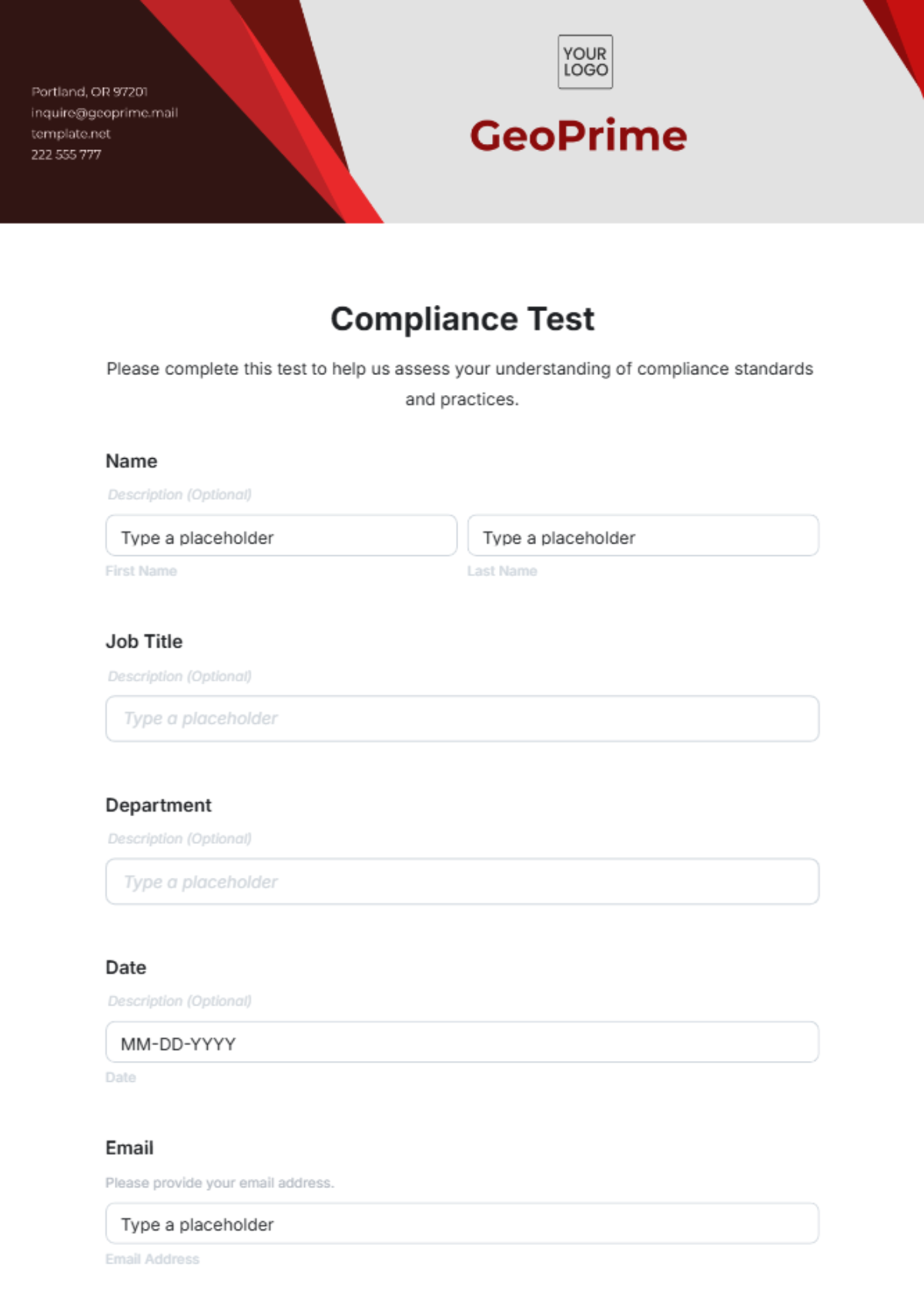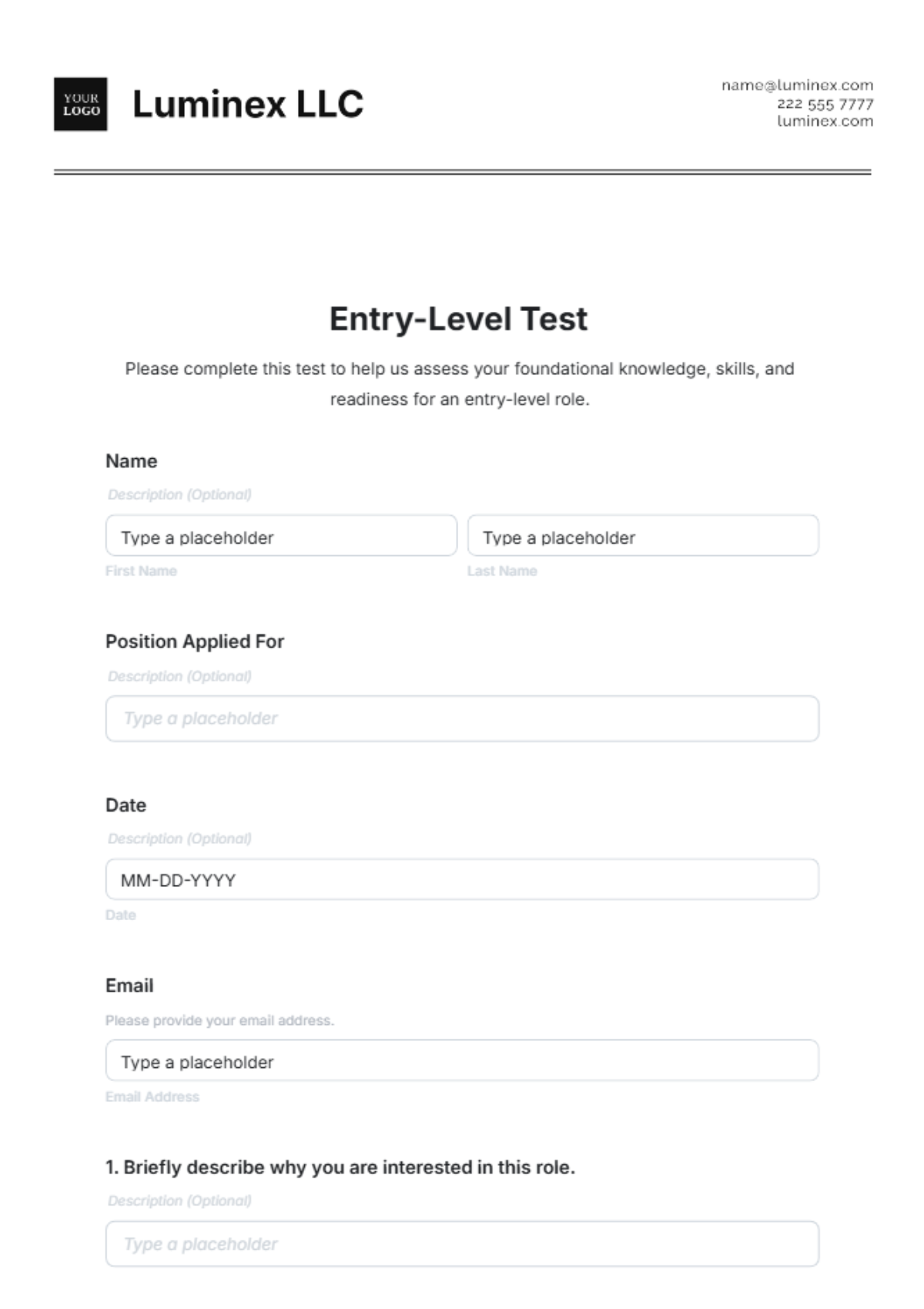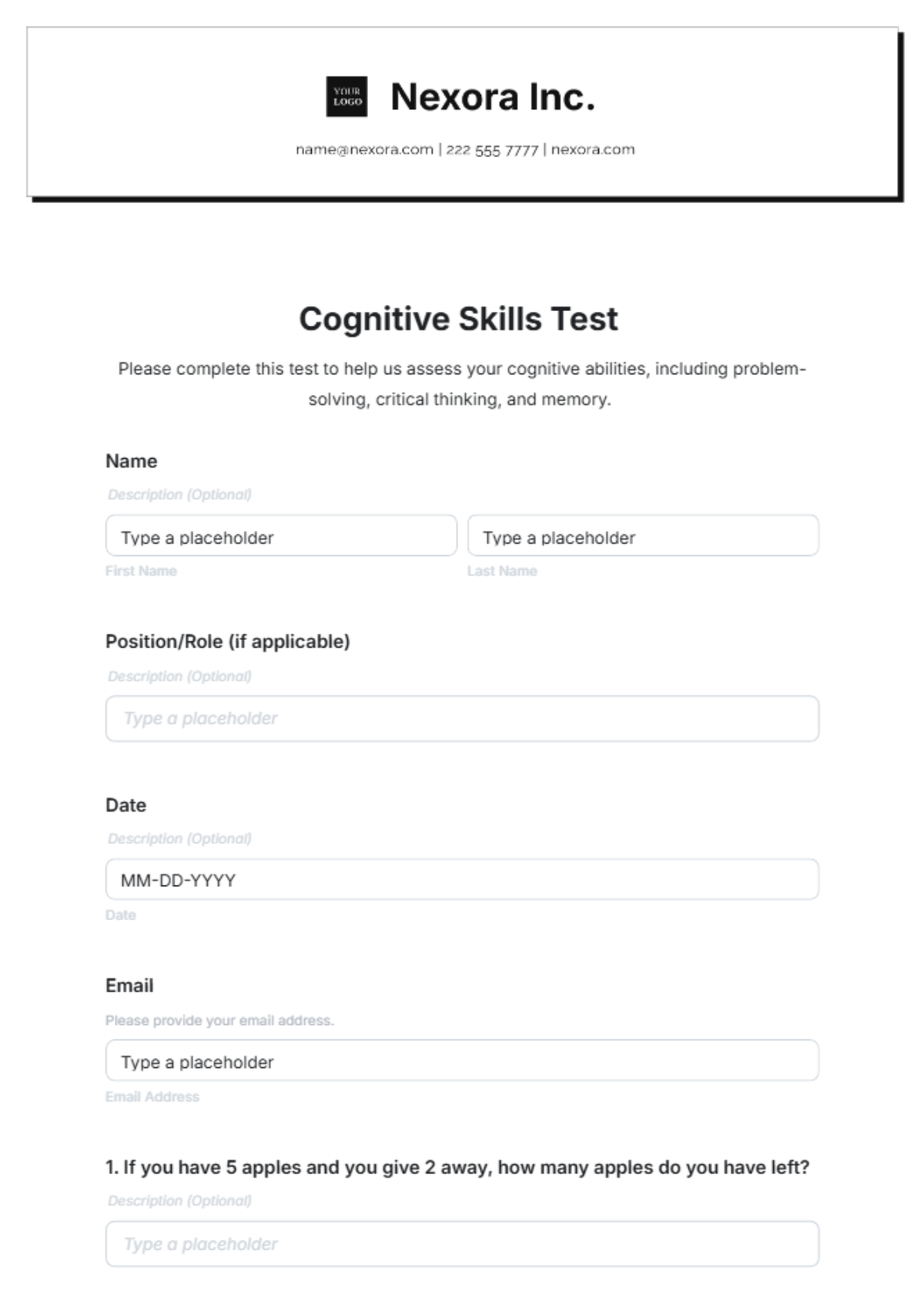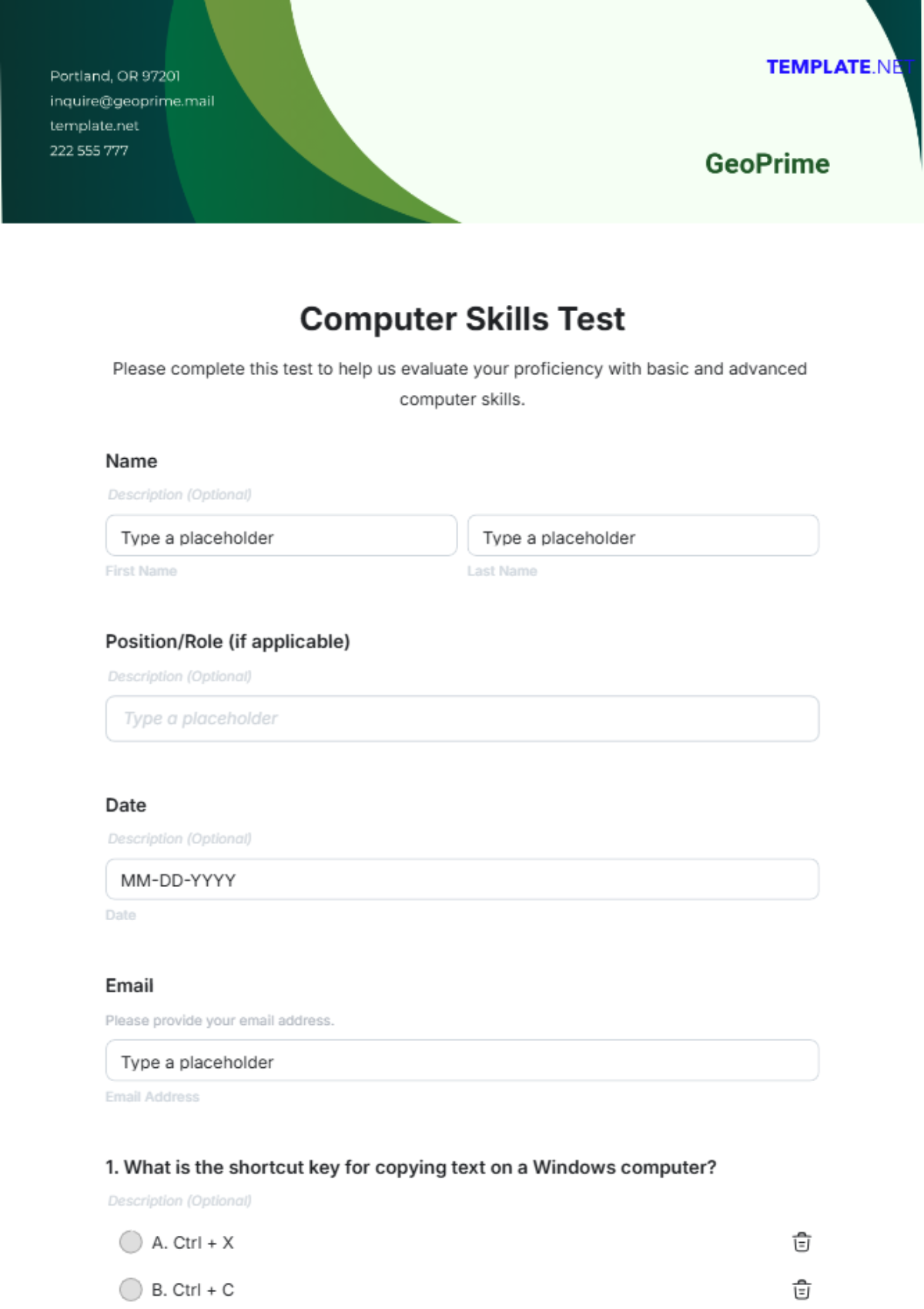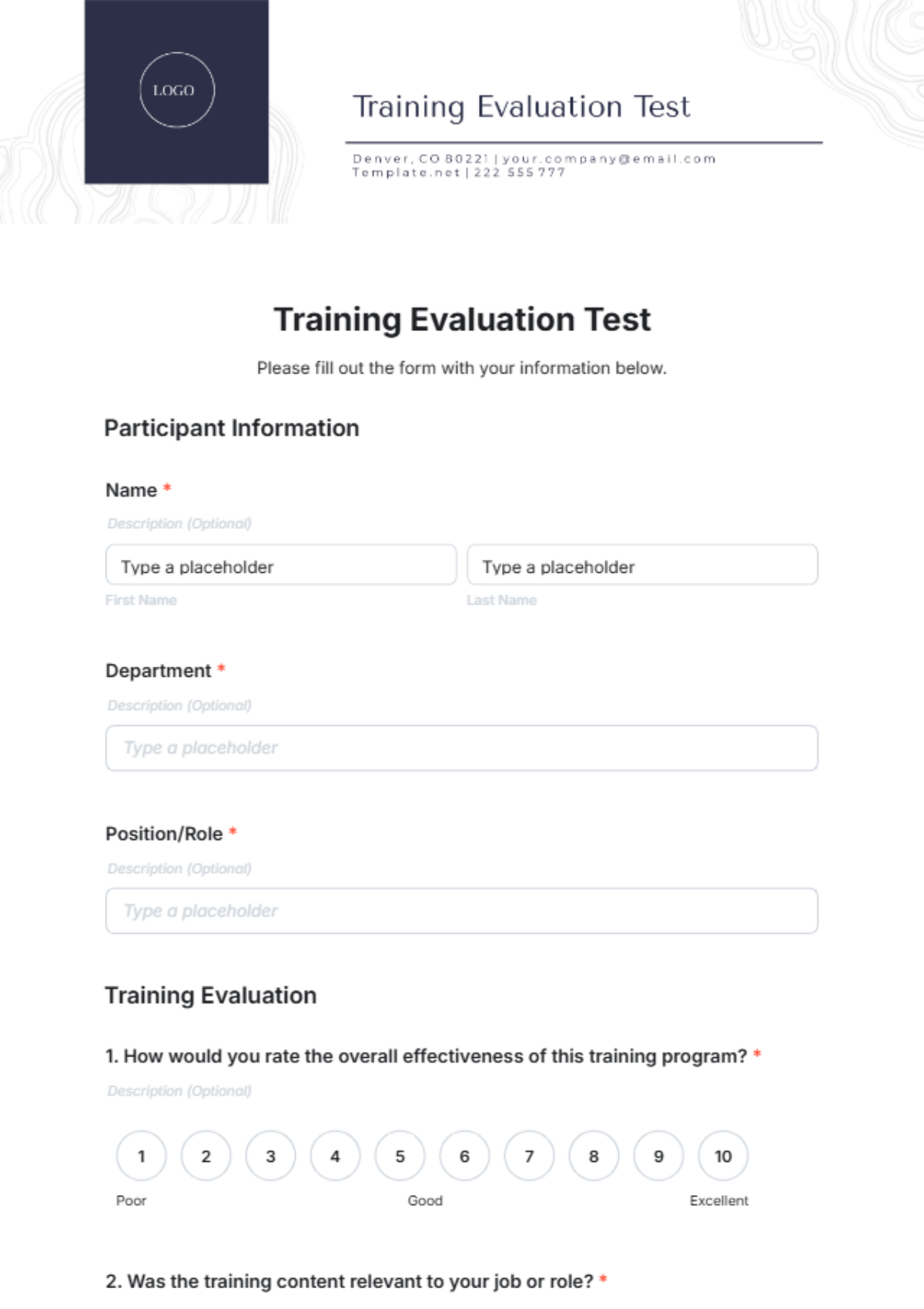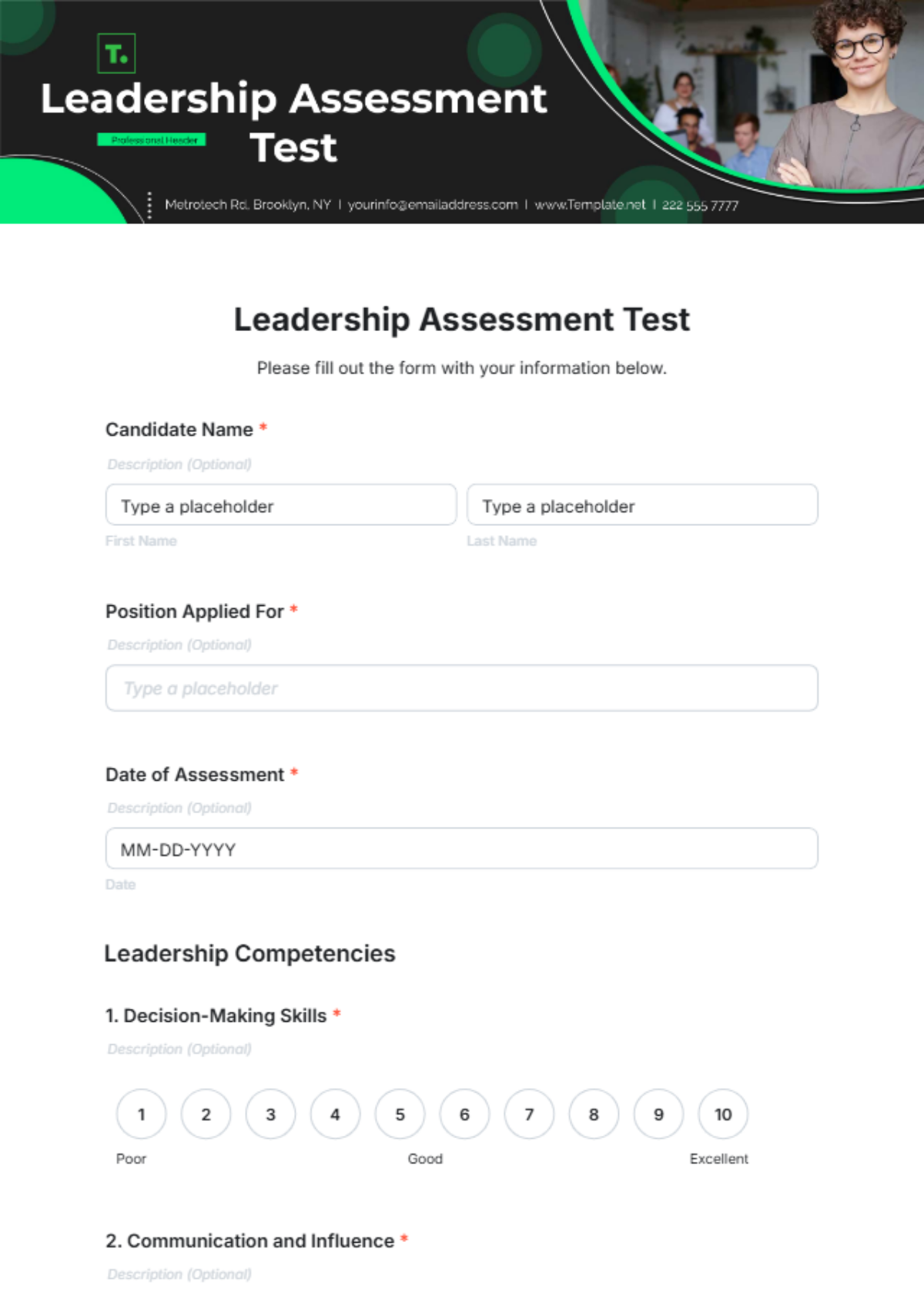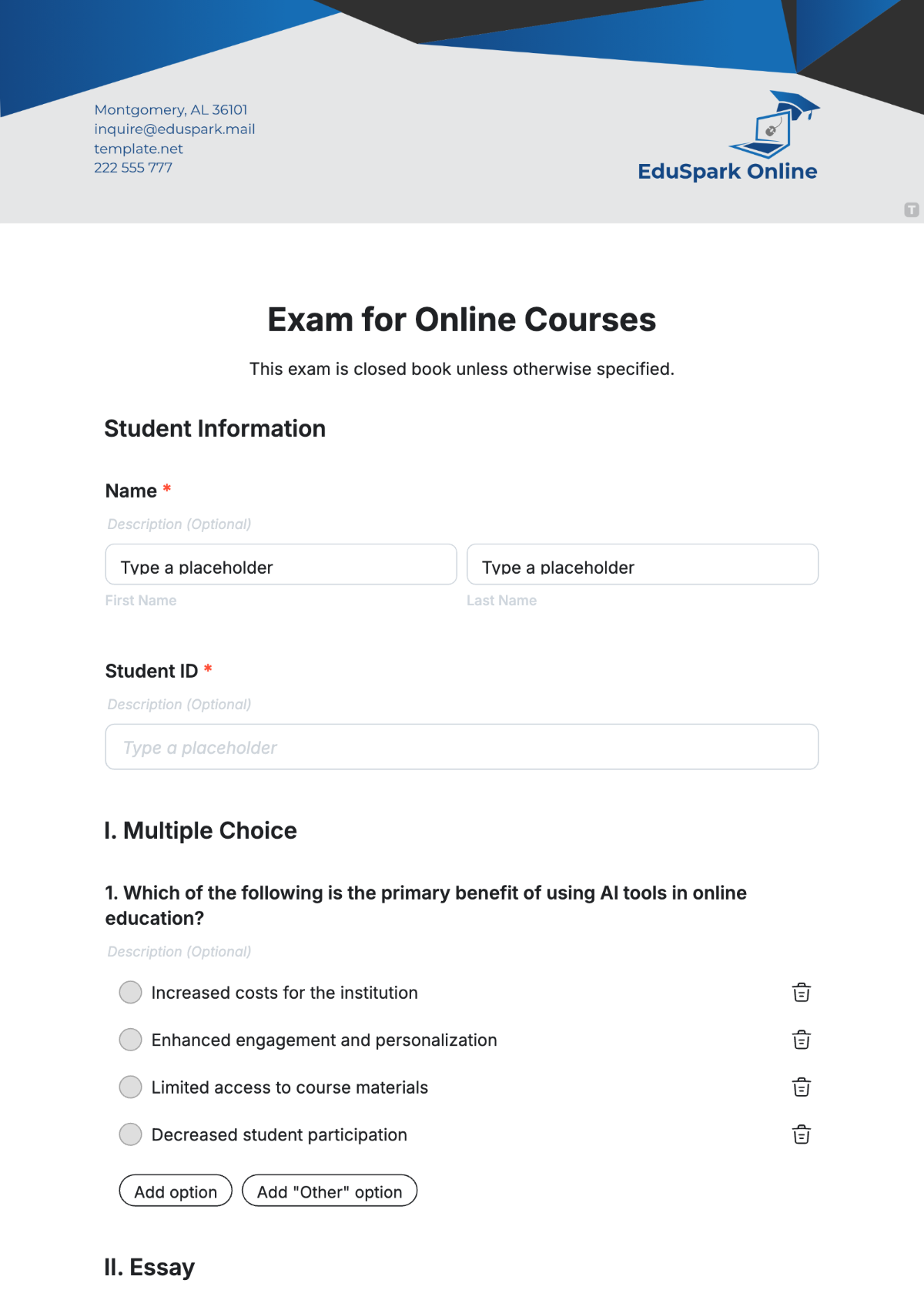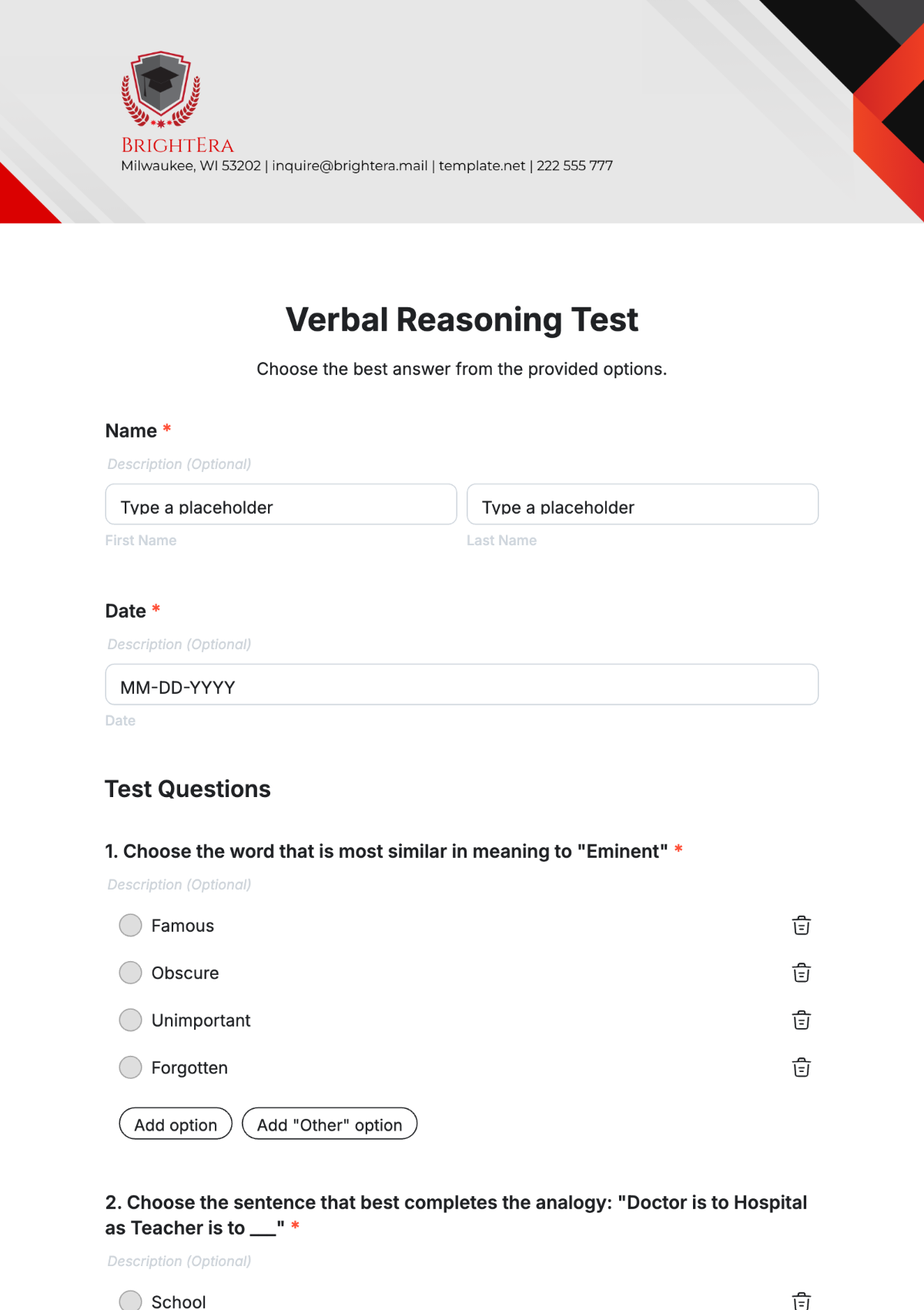INTERNSHIP APTITUDE TEST
Introduction
Background
The Internship Aptitude Test is a meticulously designed evaluation tool aimed at assessing a wide range of skills and aptitudes among internship applicants. Developed by experts in various fields, the test serves as a cornerstone in the recruitment process, ensuring that only the most qualified candidates proceed to the interview stage.
Importance
The test plays a pivotal role in the recruitment process by acting as a filter that sifts through a large pool of applicants. It helps in identifying candidates who not only possess the requisite technical skills but also align well with the company's culture and values.
Objectives
Primary Objective
The primary objective is to rigorously assess and identify candidates who have the skills, aptitude, and potential to excel in the internship roles offered by the company.
Secondary Objectives
Streamlining Recruitment: The test helps in reducing the time and resources spent on the initial stages of recruitment by filtering out unqualified candidates.
Standardized Comparison: It provides a uniform platform for evaluating candidates from diverse backgrounds and educational institutions.
Components of the Test
Verbal Ability
Effective communication is indispensable in a professional setting. A strong grasp of language enables clear and concise communication, which is crucial for teamwork, client interactions, and internal communications.
Quantitative Ability
Quantitative skills are vital for tasks that involve data analysis, financial planning, and problem-solving. These skills are often essential in roles that require numerical competence, such as finance, engineering, and data analysis.
Logical Reasoning
Logical reasoning skills are essential for making sense of complex situations, solving problems efficiently, and making informed decisions. These skills are highly valued in roles that require strategic planning or troubleshooting.
Technical Skills
Technical skills are the bedrock of any specialized role. Whether it's coding for a software internship or financial modeling for a finance role, these skills ensure that the candidate can contribute effectively from day one.
Behavioral Assessment
Behavioral traits often determine how well a candidate will fit into the company culture. Traits like teamwork, leadership, and ethics are crucial for long-term success and are highly valued by employers.
Test Format
Question Types
The test comprises multiple-choice questions (MCQs), each with four options. This format is chosen for its effectiveness in assessing a candidate's knowledge and speed, as they have to select the correct answer within a limited time frame.
Time Limit
The total time allocated for the test is 75 minutes. This time limit is carefully calibrated to challenge the candidates while providing sufficient time to complete all questions. Time management is a crucial skill that the test also aims to assess.
Scoring Methodology
Point System
Each question in the test carries one point, making the maximum possible score 50 points. This point system is designed to make scoring straightforward and easily interpretable.
Negative Marking
The test does not have a negative marking system. This decision was made to encourage candidates to attempt all questions without the fear of losing points, thereby providing a more accurate representation of their knowledge and skills.
Test Components
Verbal Ability: 20%
Quantitative Ability: 20%
Logical Reasoning: 20%
Technical Skills: 20%
Behavioral Assessment: 20%
The pie chart serves as a visual guide to understanding the weightage of each component in the test. It is particularly useful for candidates to understand where they should focus their preparation efforts.
Implementation Steps
Test Creation
The first step involves customizing the test to align with the specific requirements of the internship role. Subject matter experts should be consulted to ensure the test accurately measures the skills and knowledge necessary for the role.
Test Announcement
The test should be announced through multiple channels, including the company's website, social media platforms, and partnerships with educational institutions, to attract a diverse pool of candidates.
Administration
The test should be administered through a secure online platform to ensure integrity. Security measures like proctoring can be considered to prevent cheating.
Scoring
After the test is administered, the scores should be calculated using the predefined methodology. This ensures a fair and transparent selection process.
Shortlisting
Candidates who score above a predetermined cut-off should be shortlisted for the next round, which could be interviews or further assessments.
FAQs
Negative Marking
The absence of negative marking is a feature designed to encourage candidates to attempt all questions, thereby providing a more comprehensive view of their abilities.
Retake Policy
The test can be taken only once per application cycle to ensure fairness and integrity in the selection process.
Conclusion
Summary
The Internship Aptitude Test is a robust and comprehensive tool designed to streamline the recruitment process. It ensures that only the most qualified candidates are shortlisted, thereby saving time and resources in the later stages of recruitment.
Final Thoughts
The implementation of this test represents a significant step towards optimizing the recruitment process. It not only aids in selecting the most qualified candidates but also sets a high standard that reflects the company's commitment to excellence.
